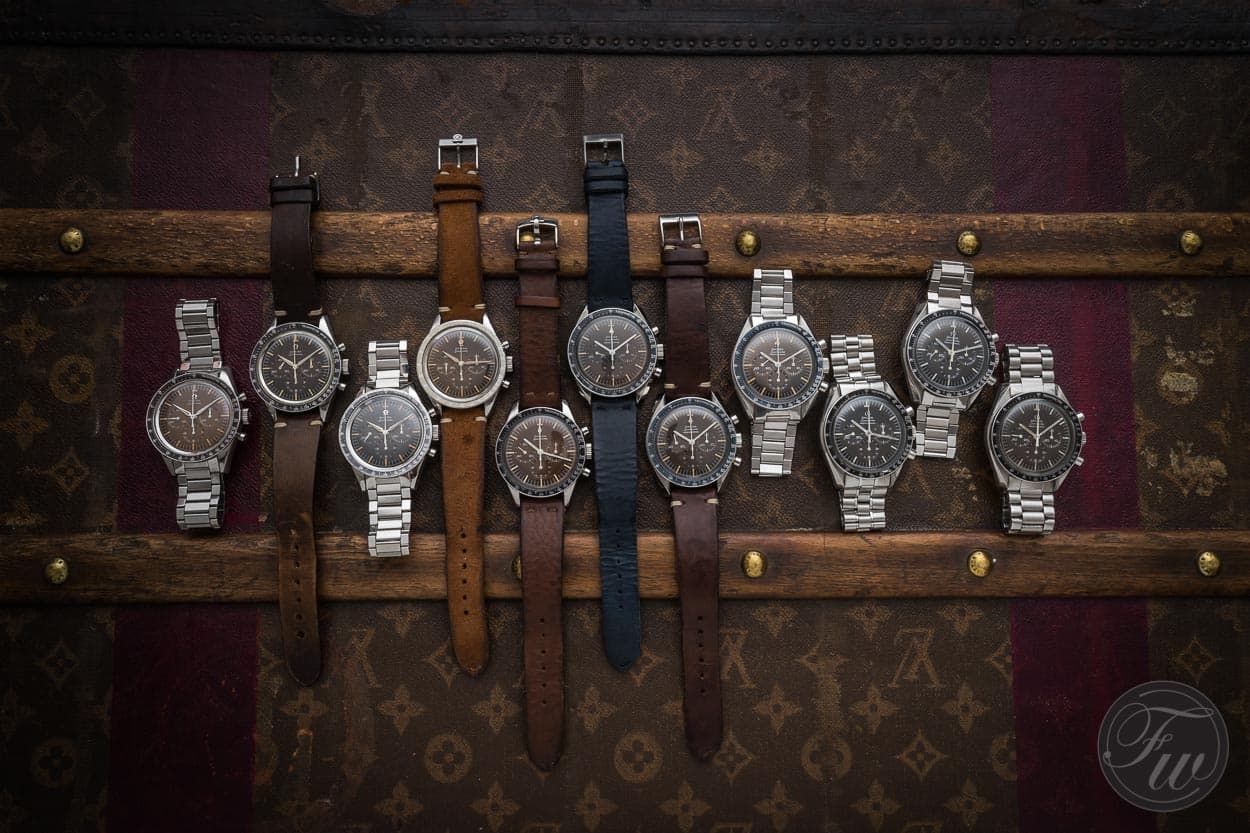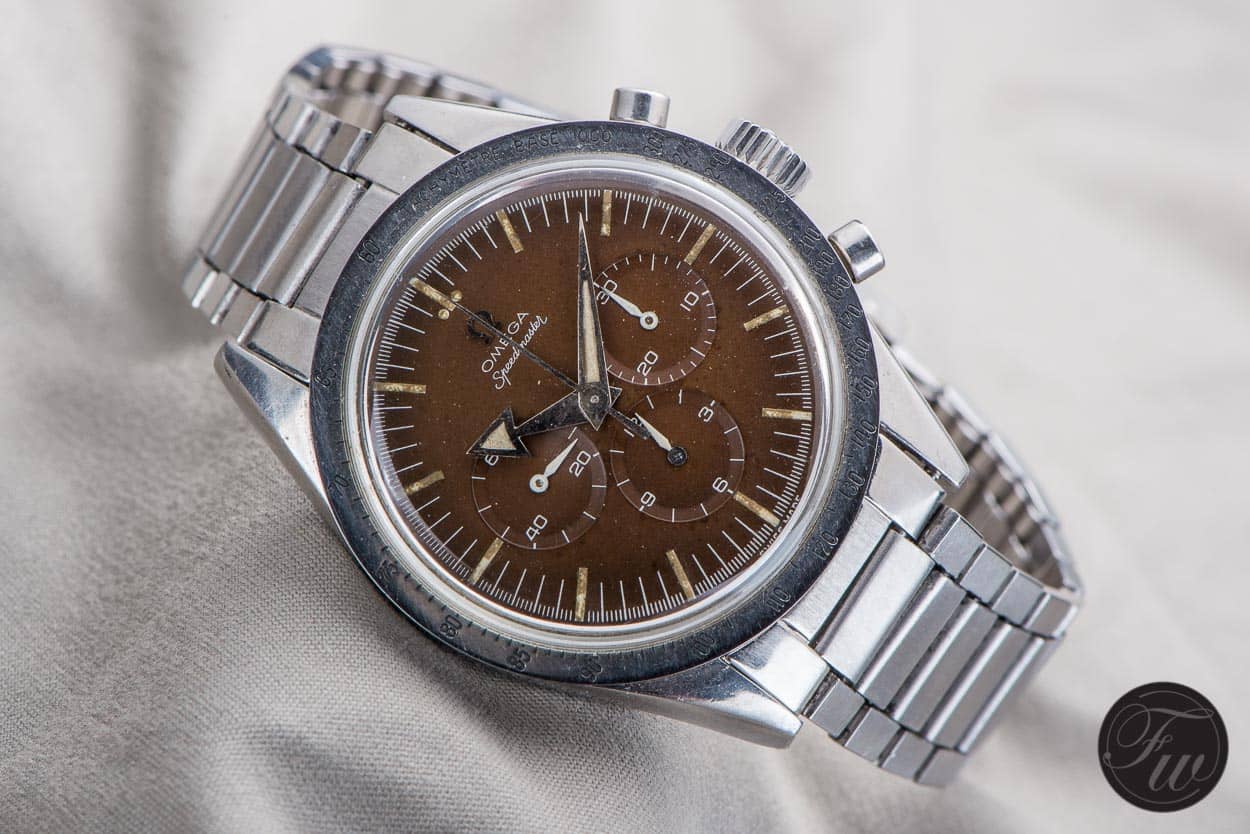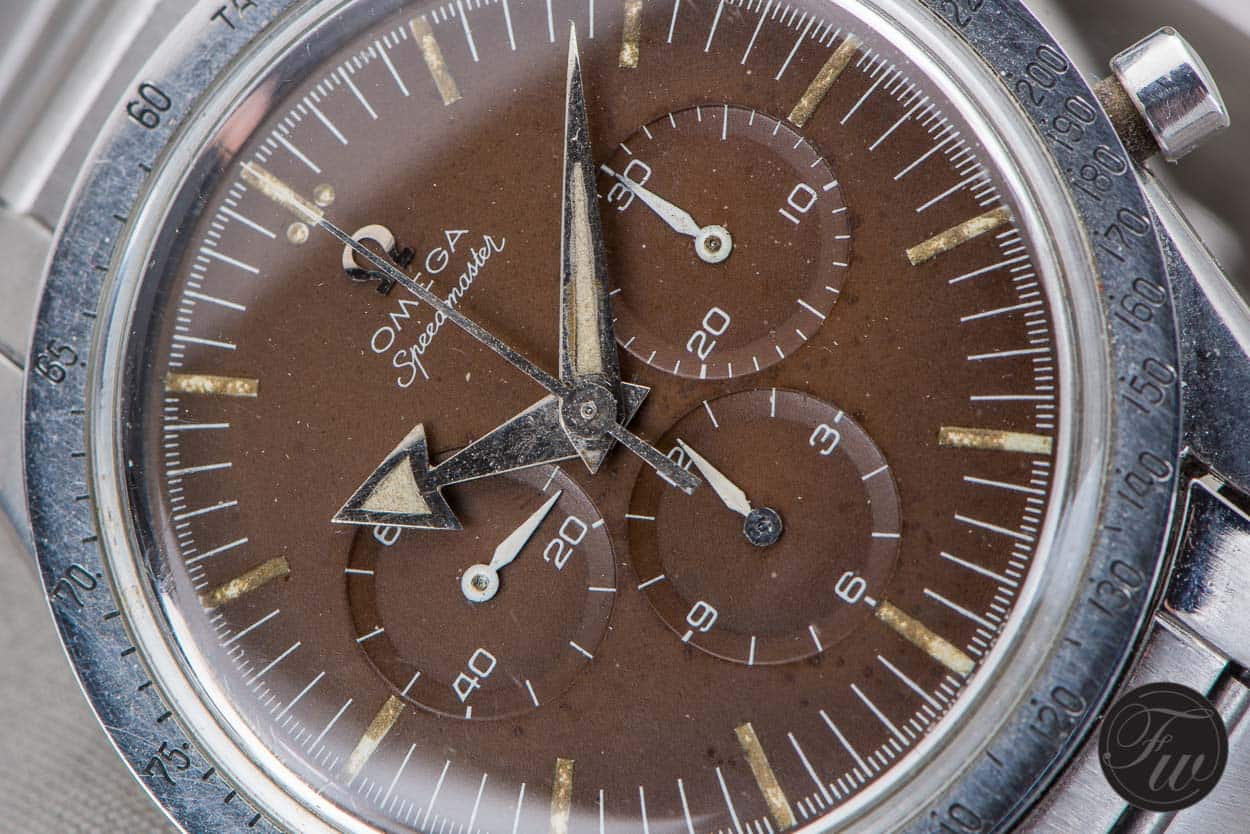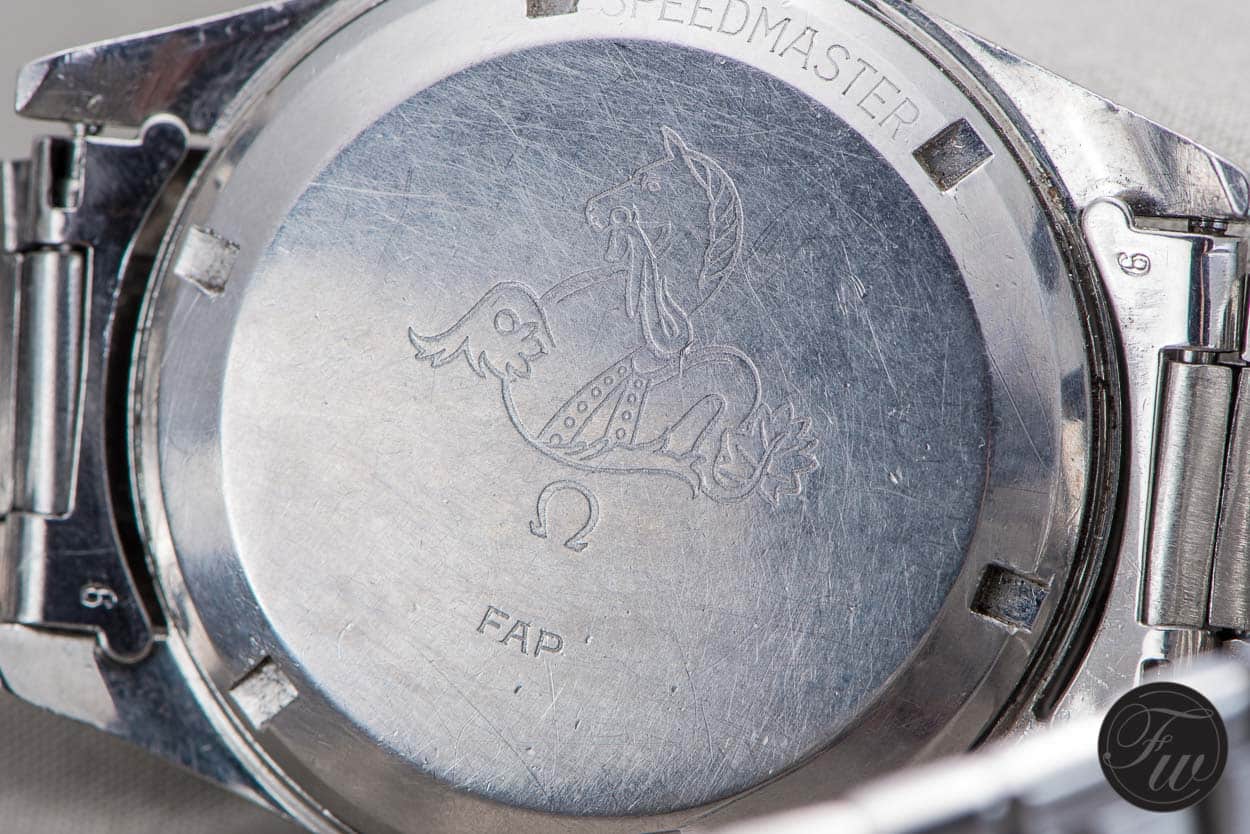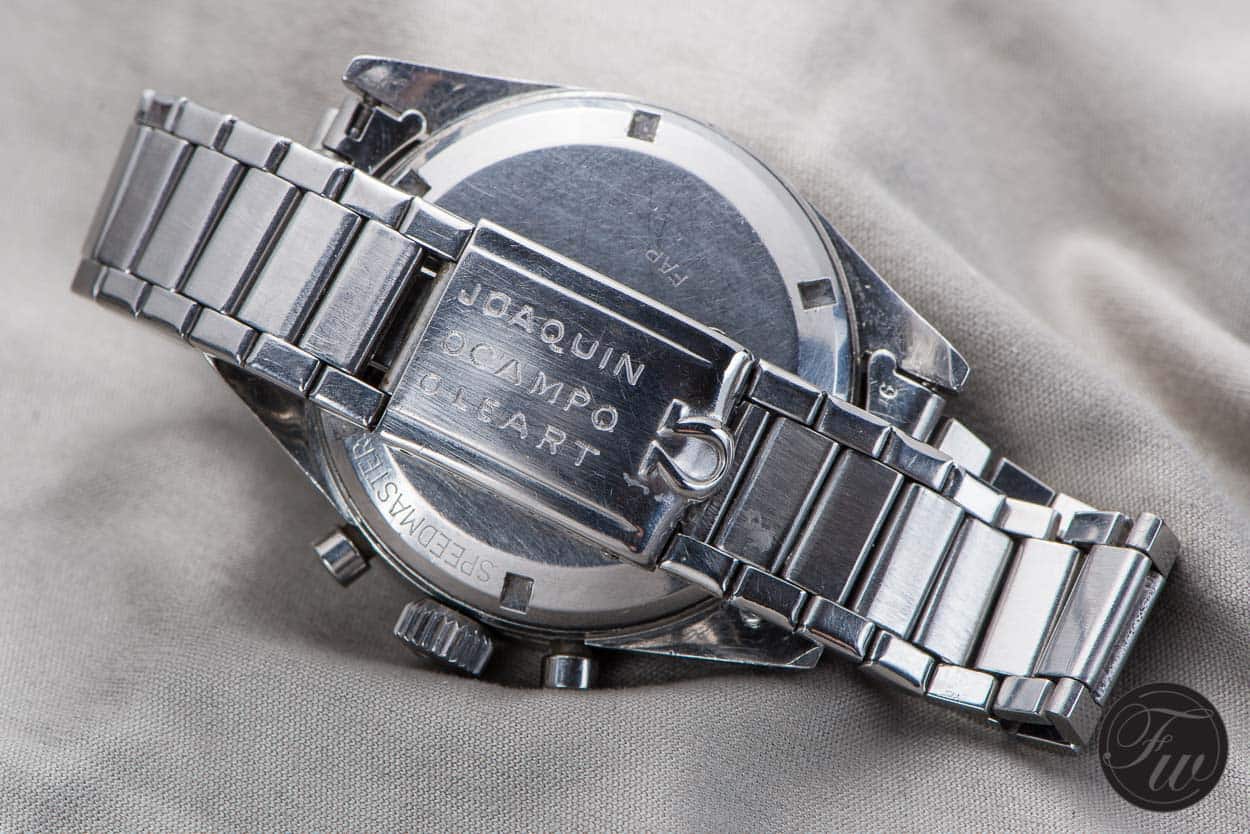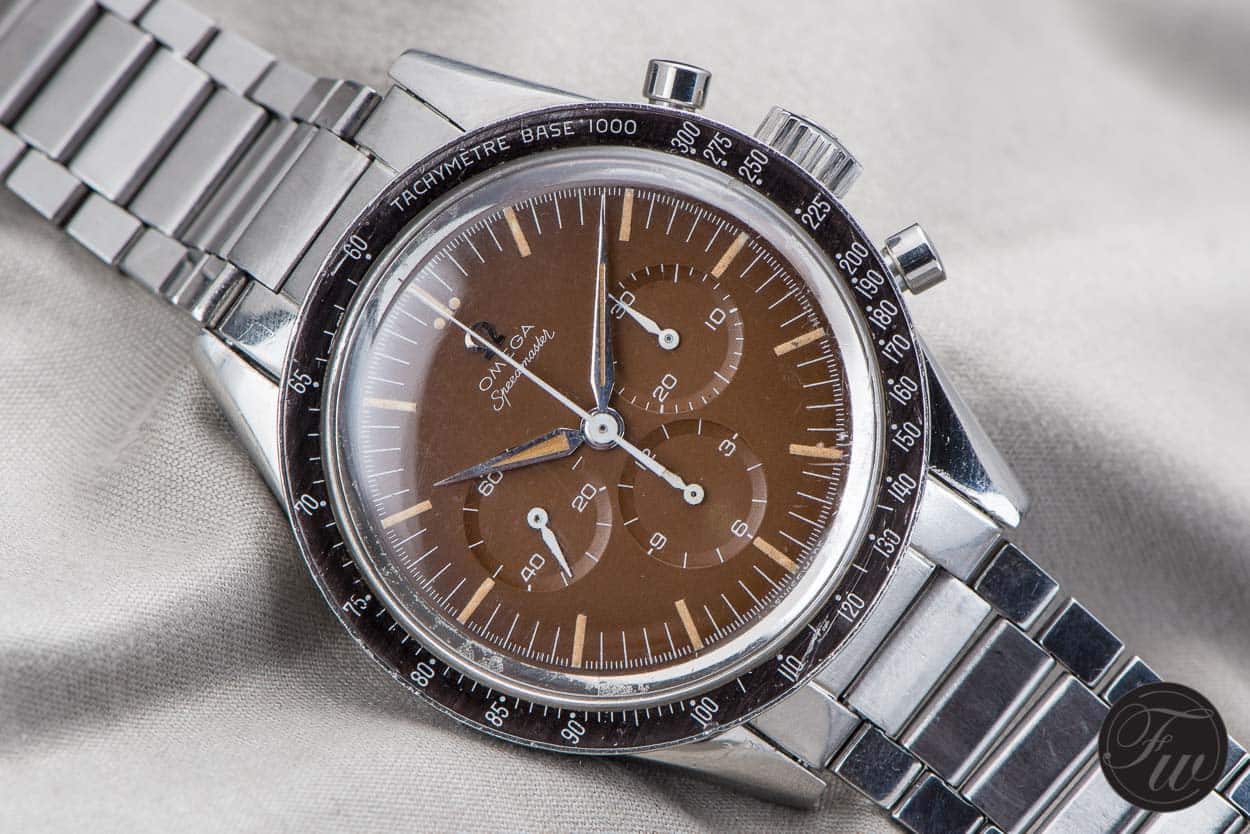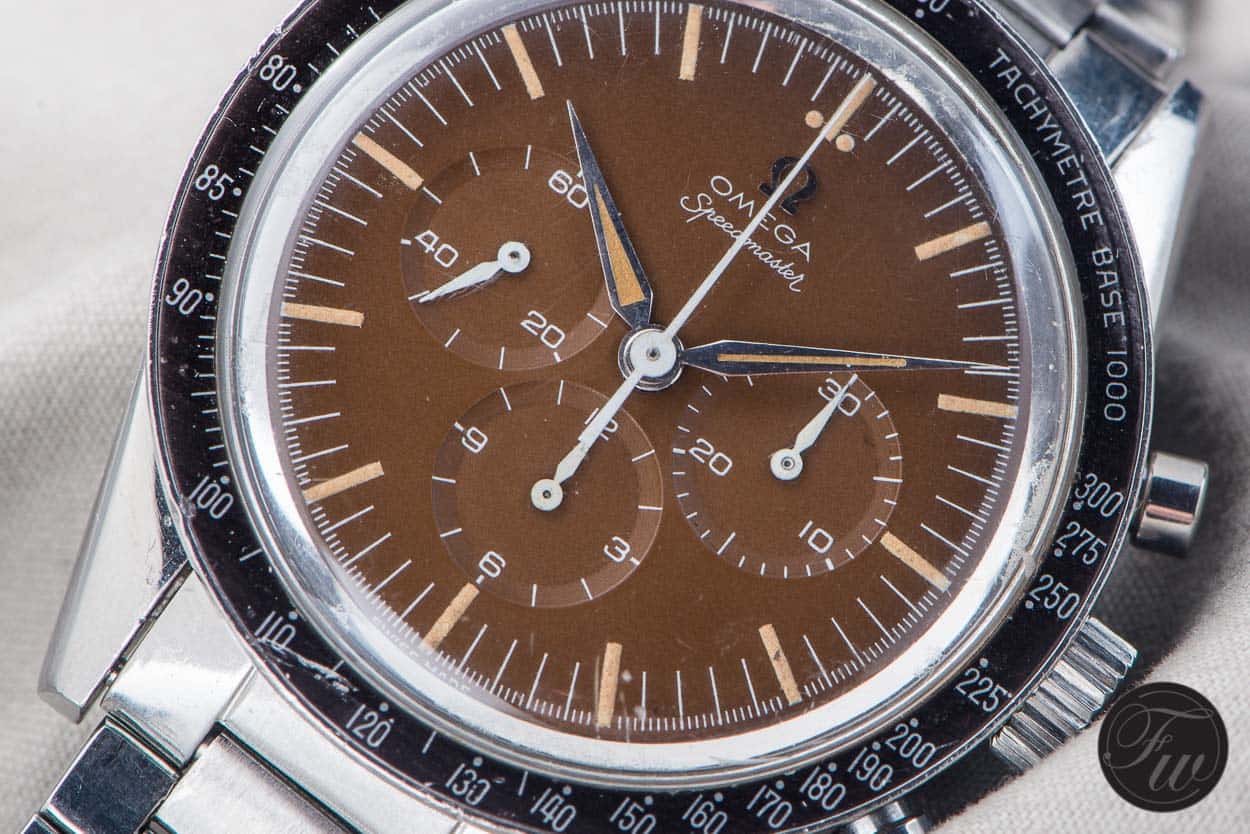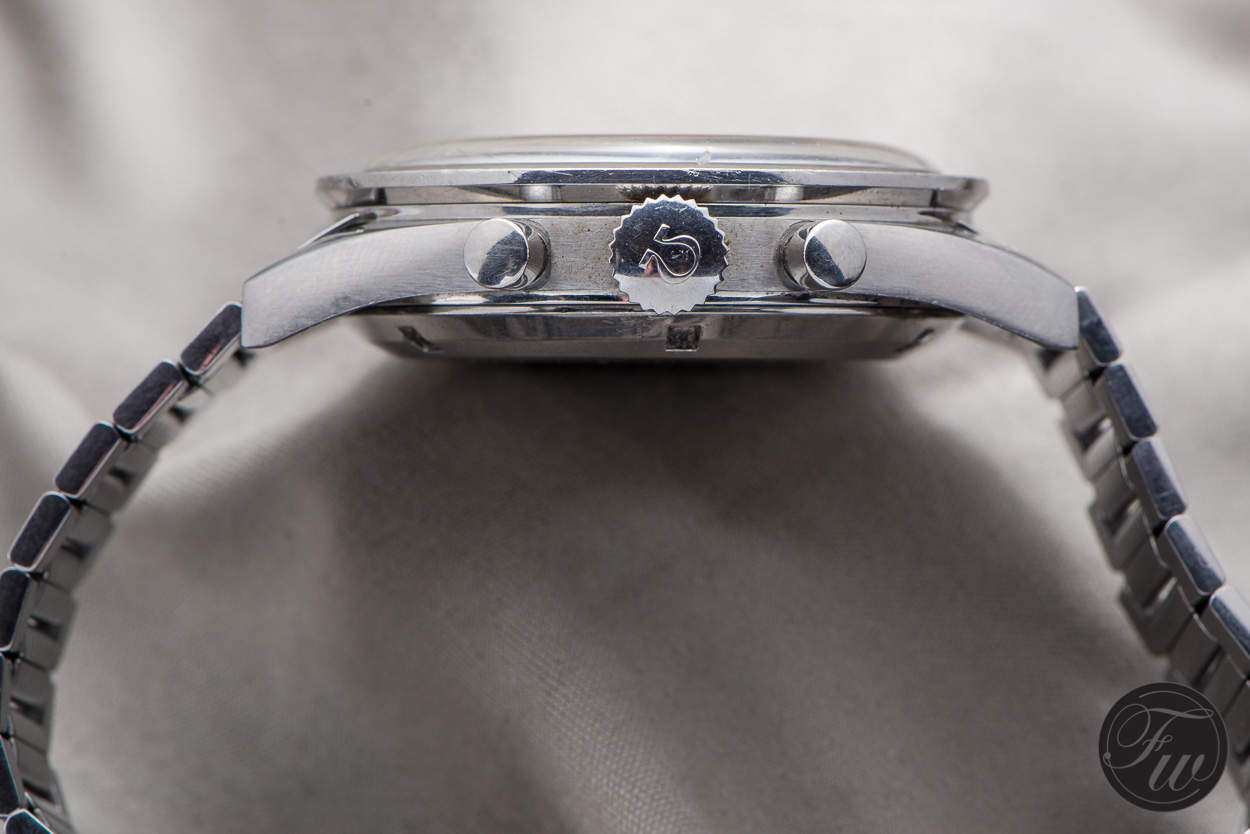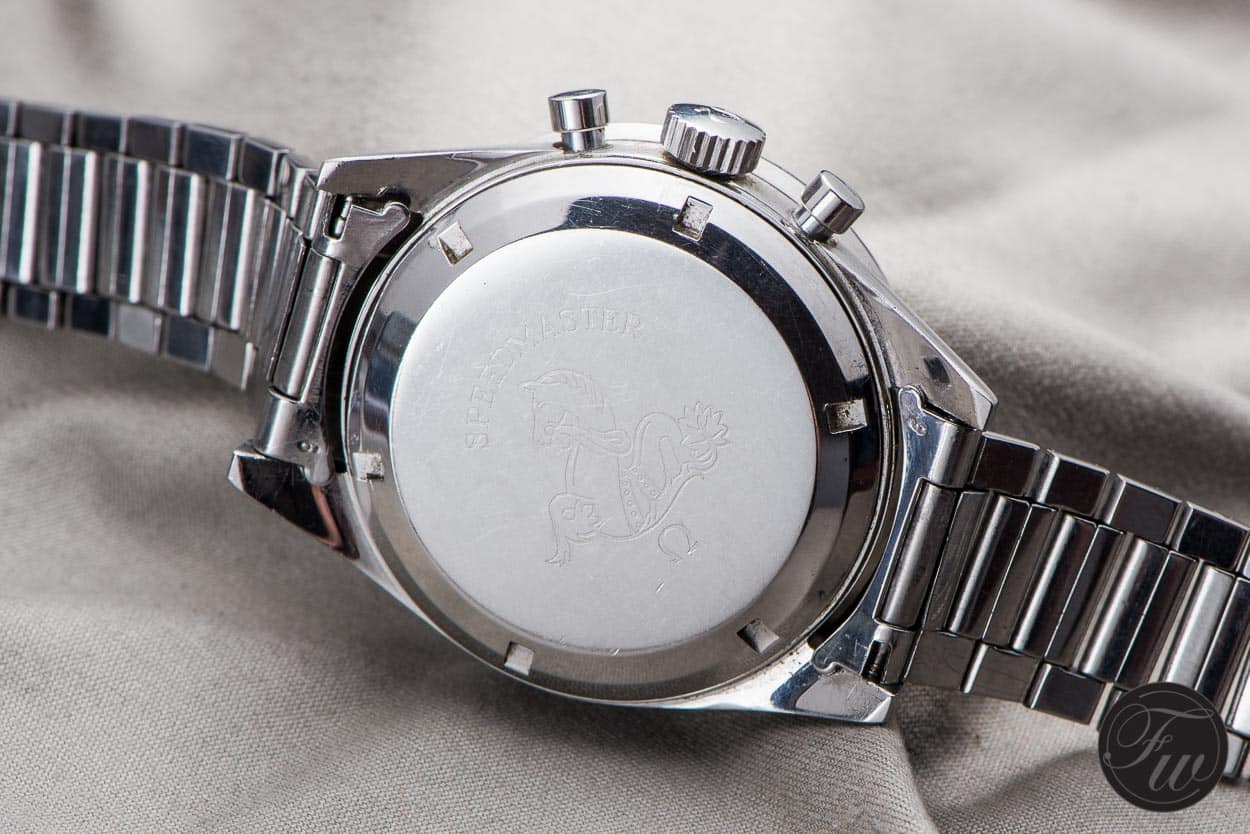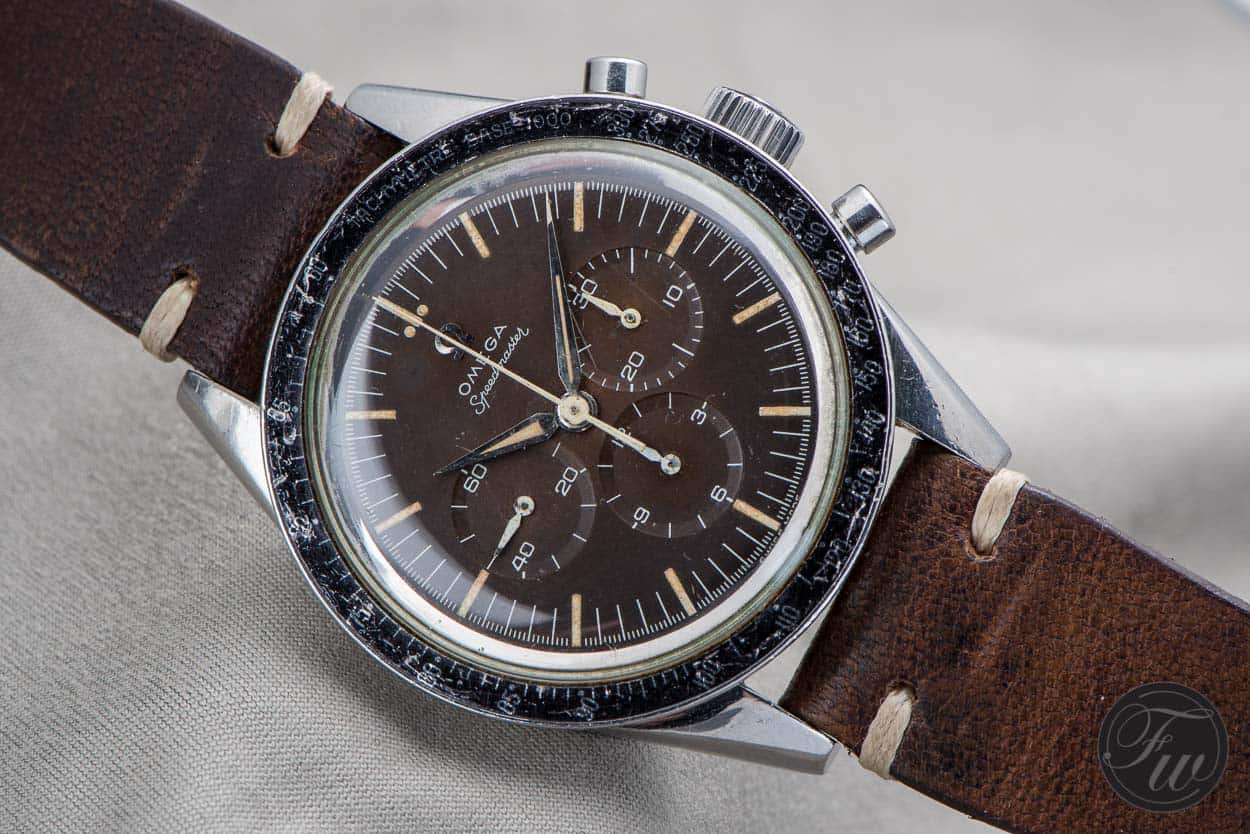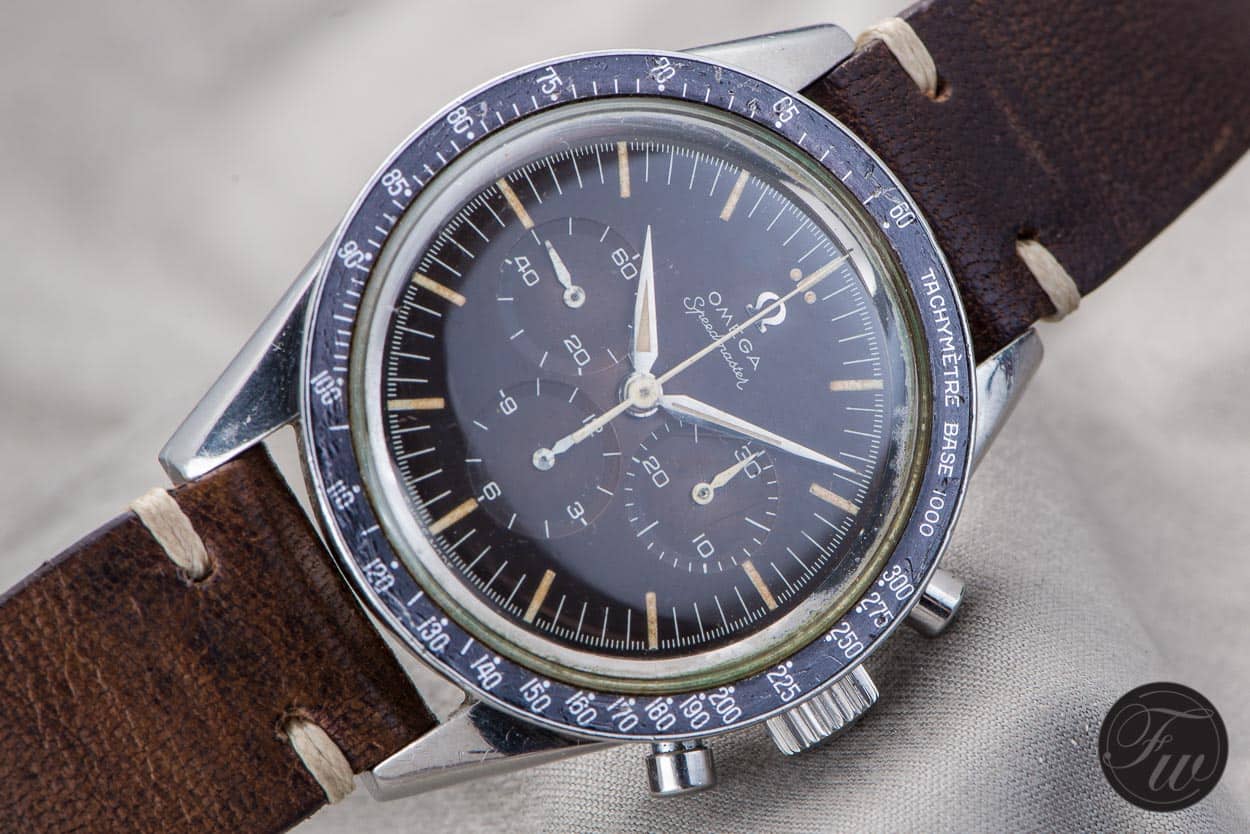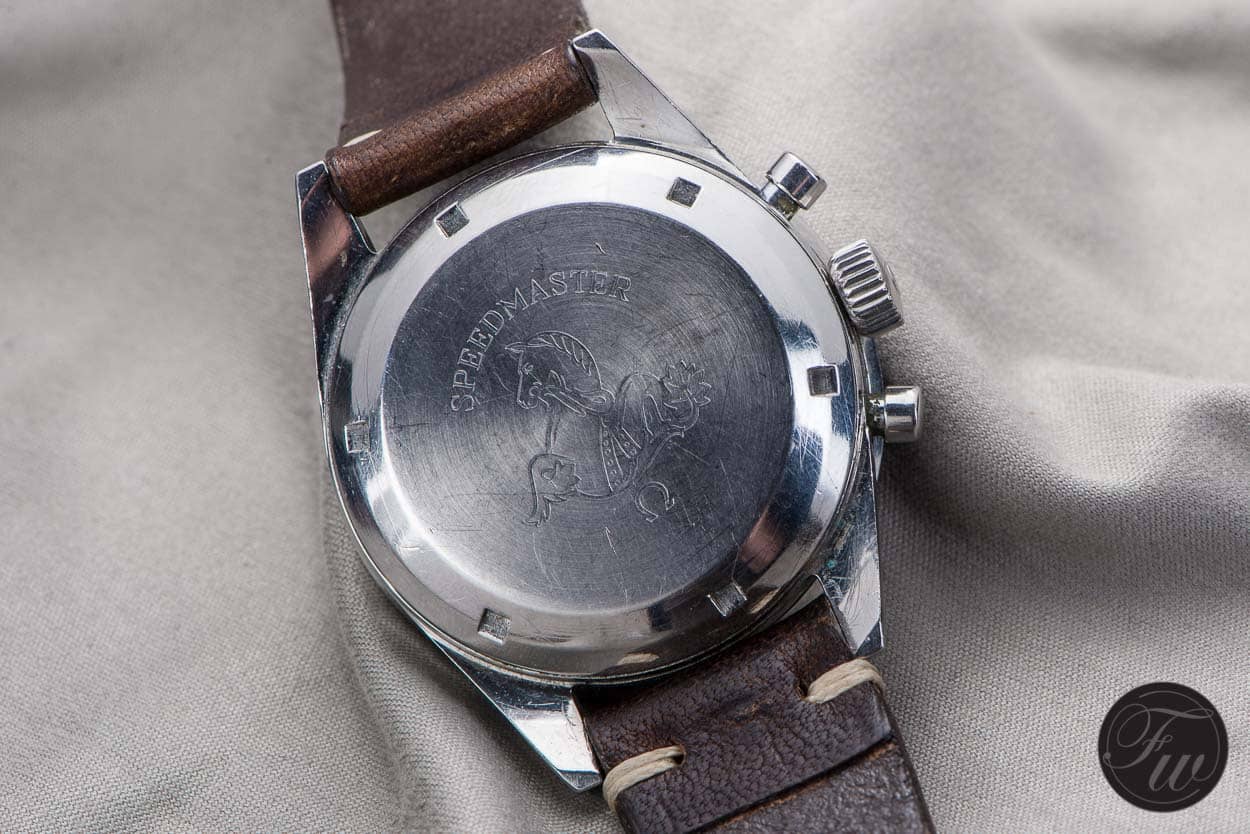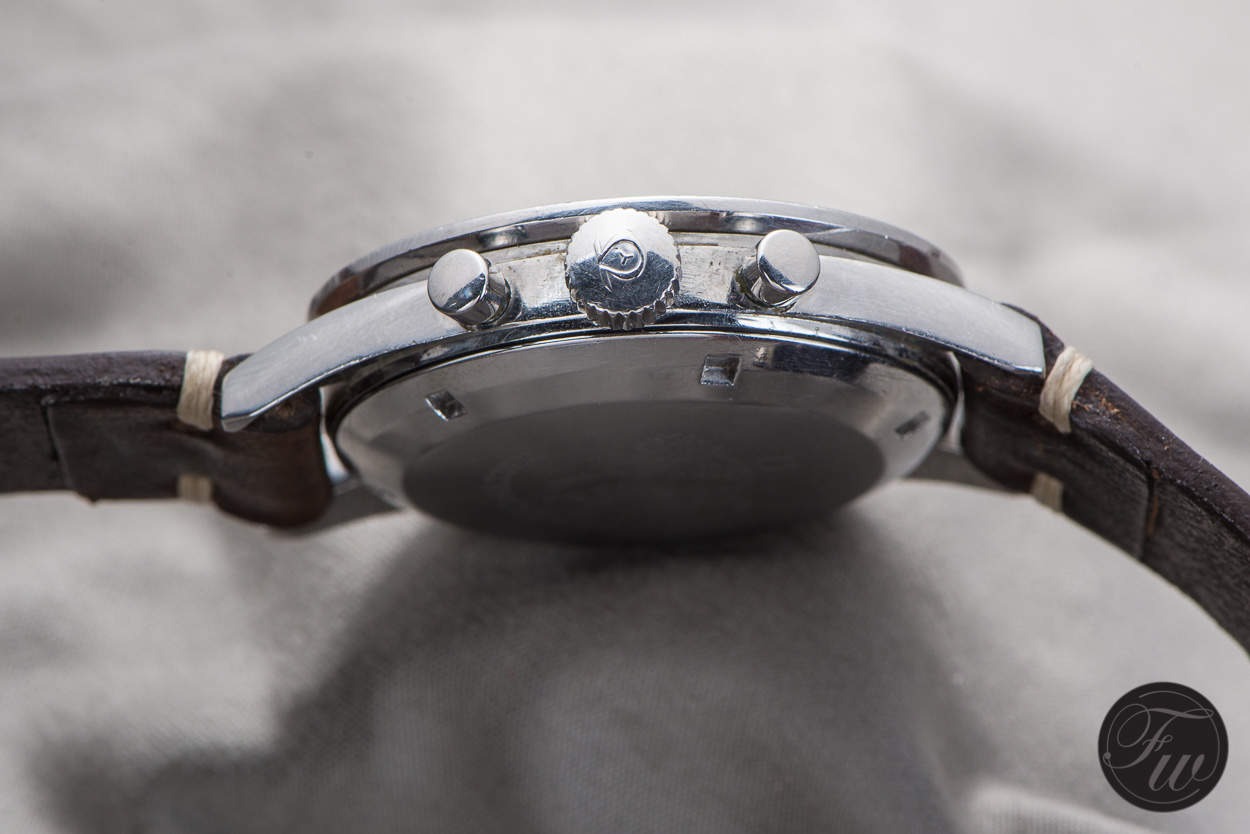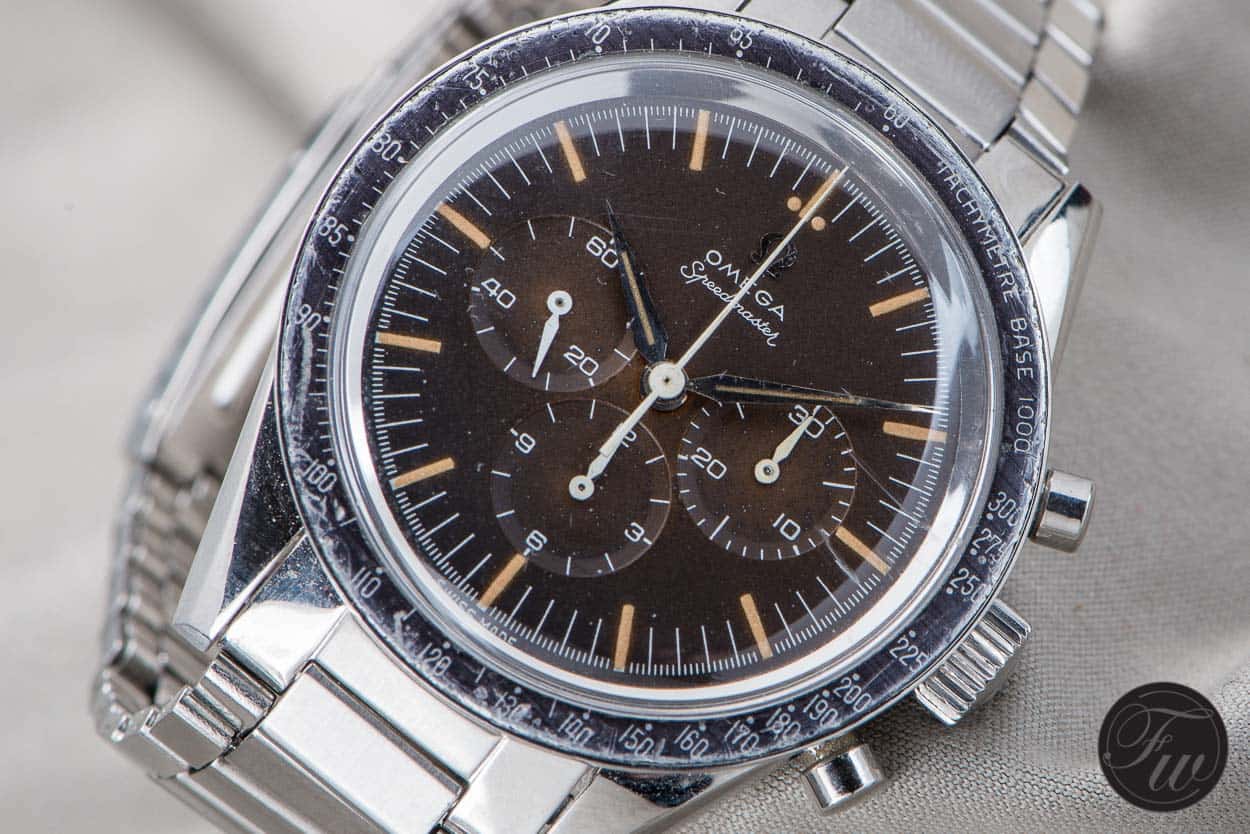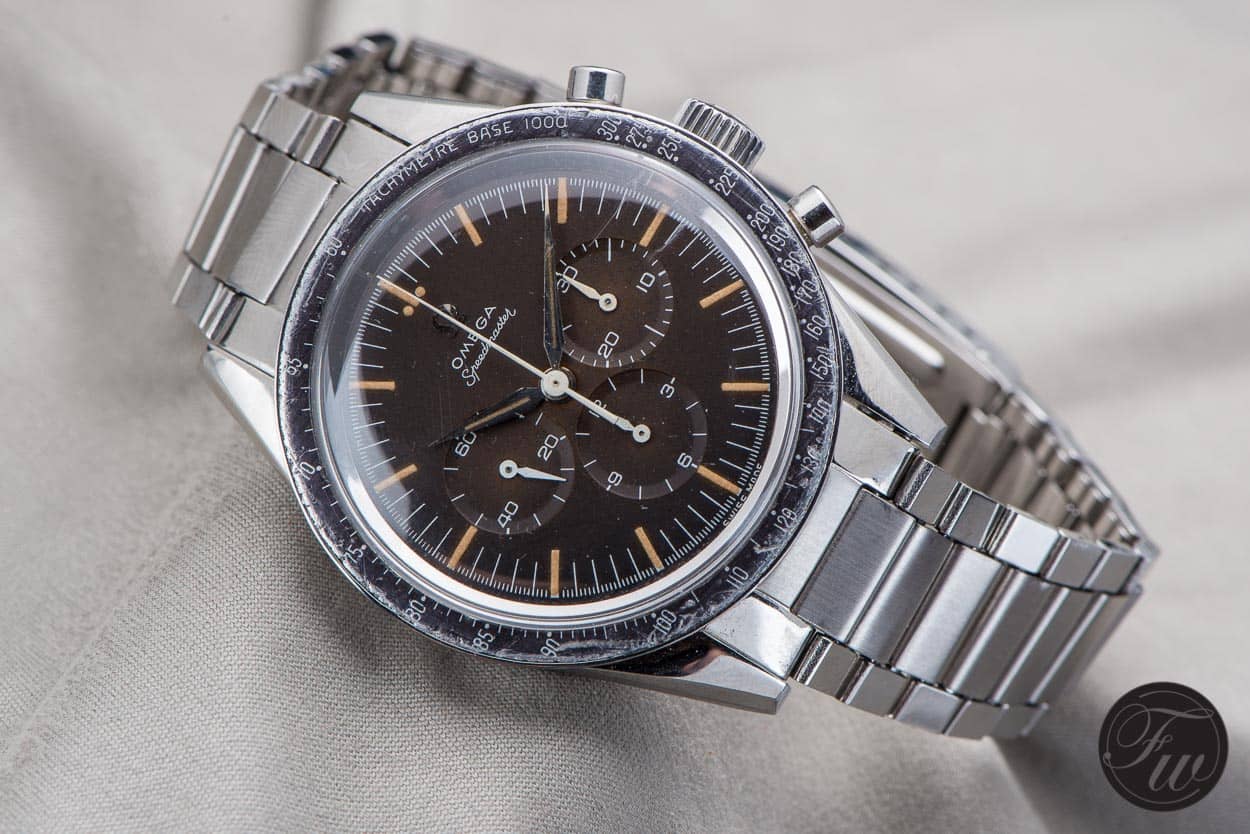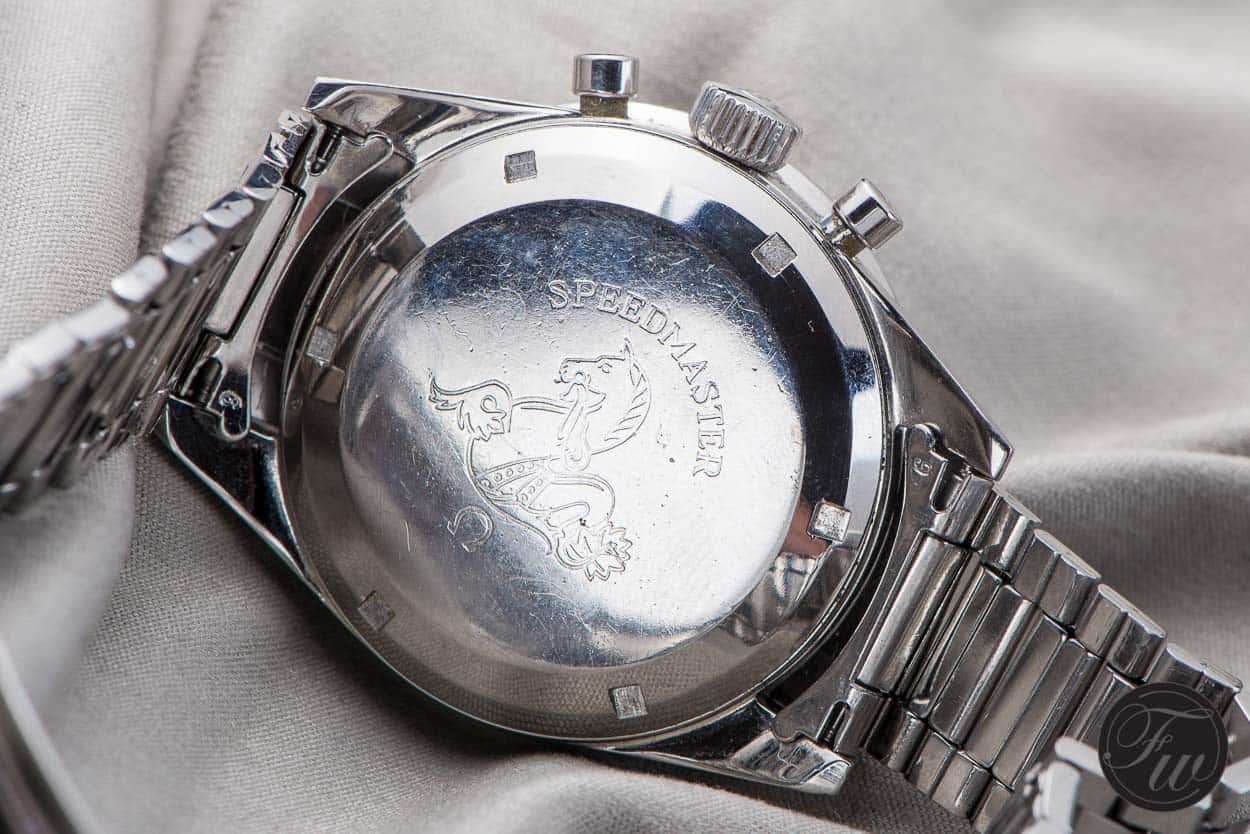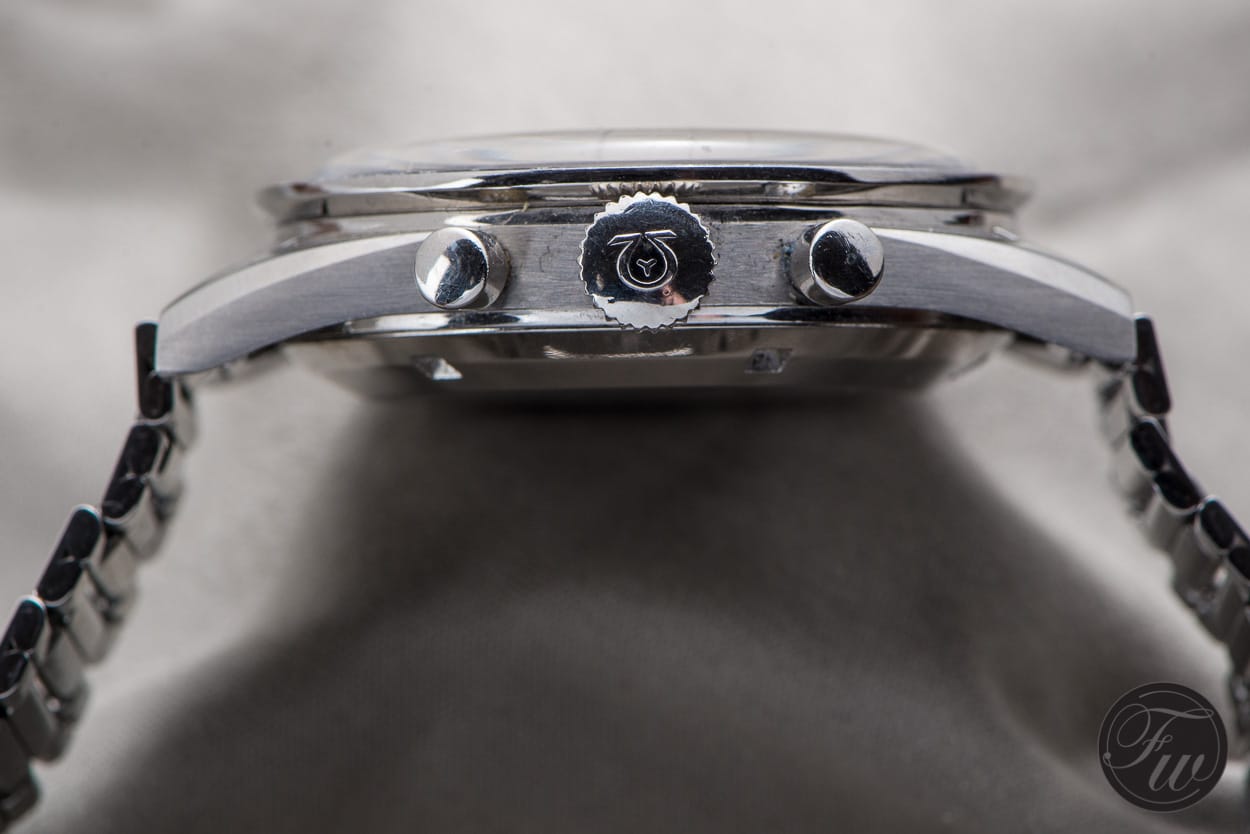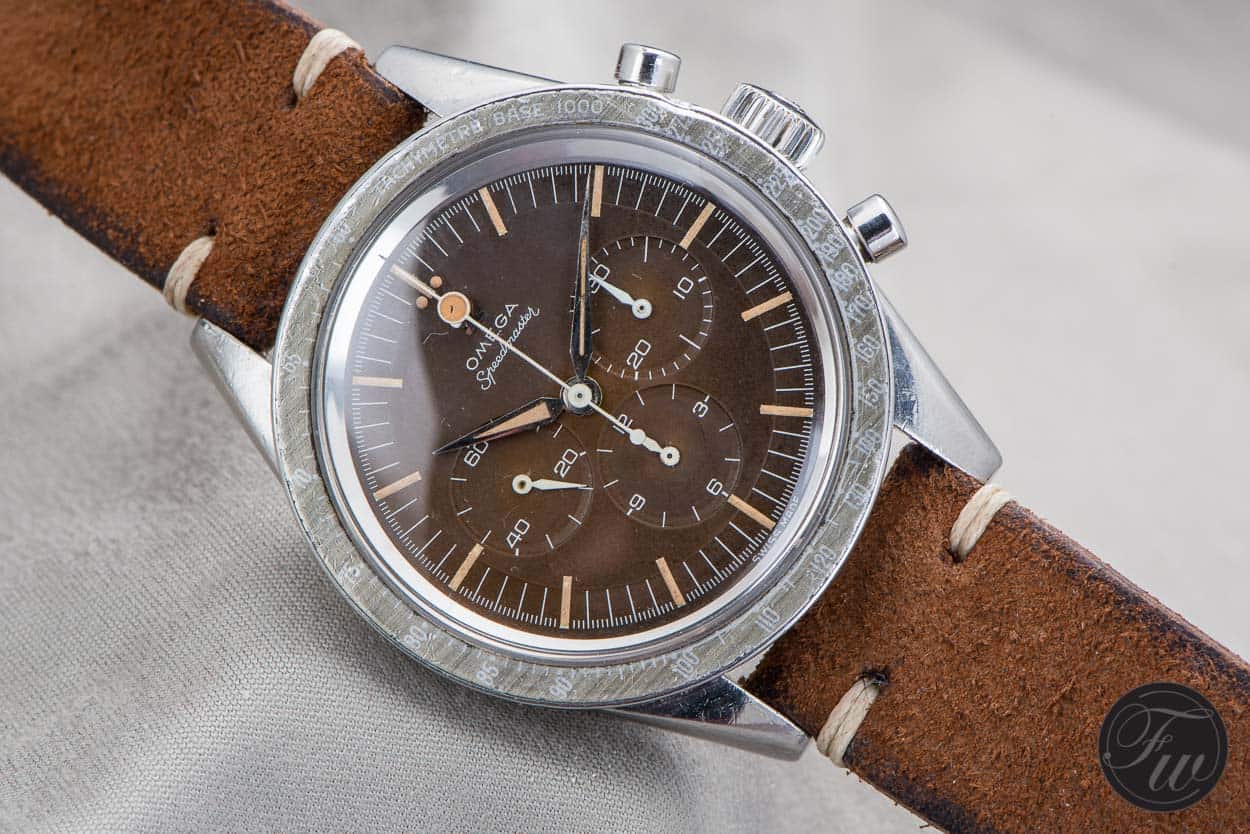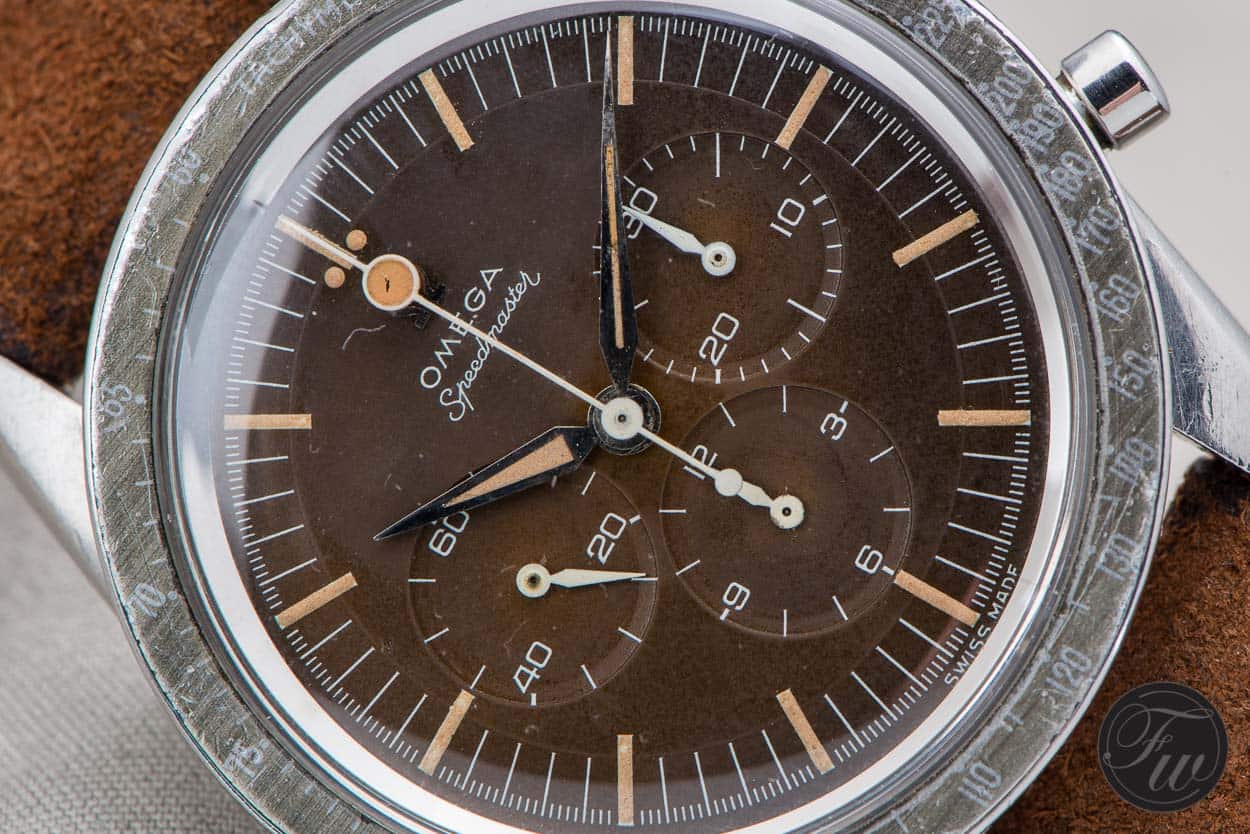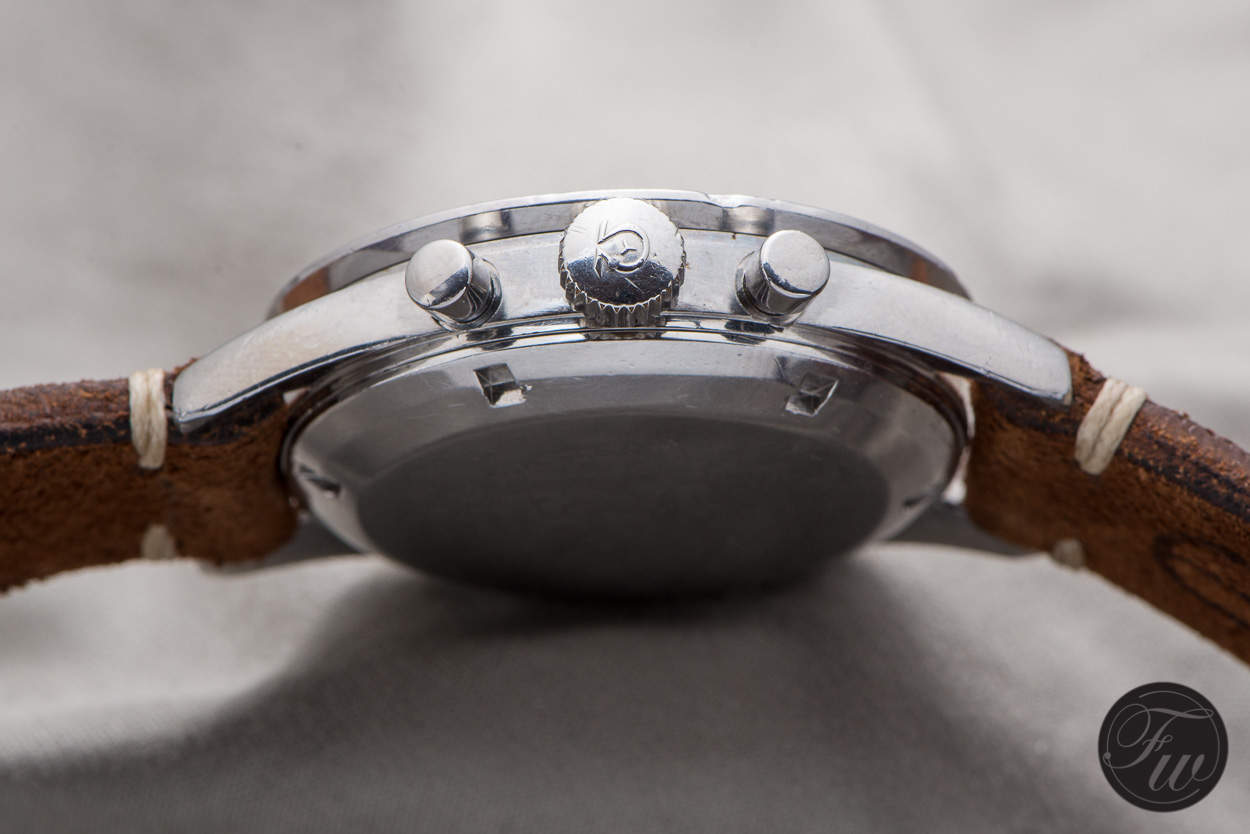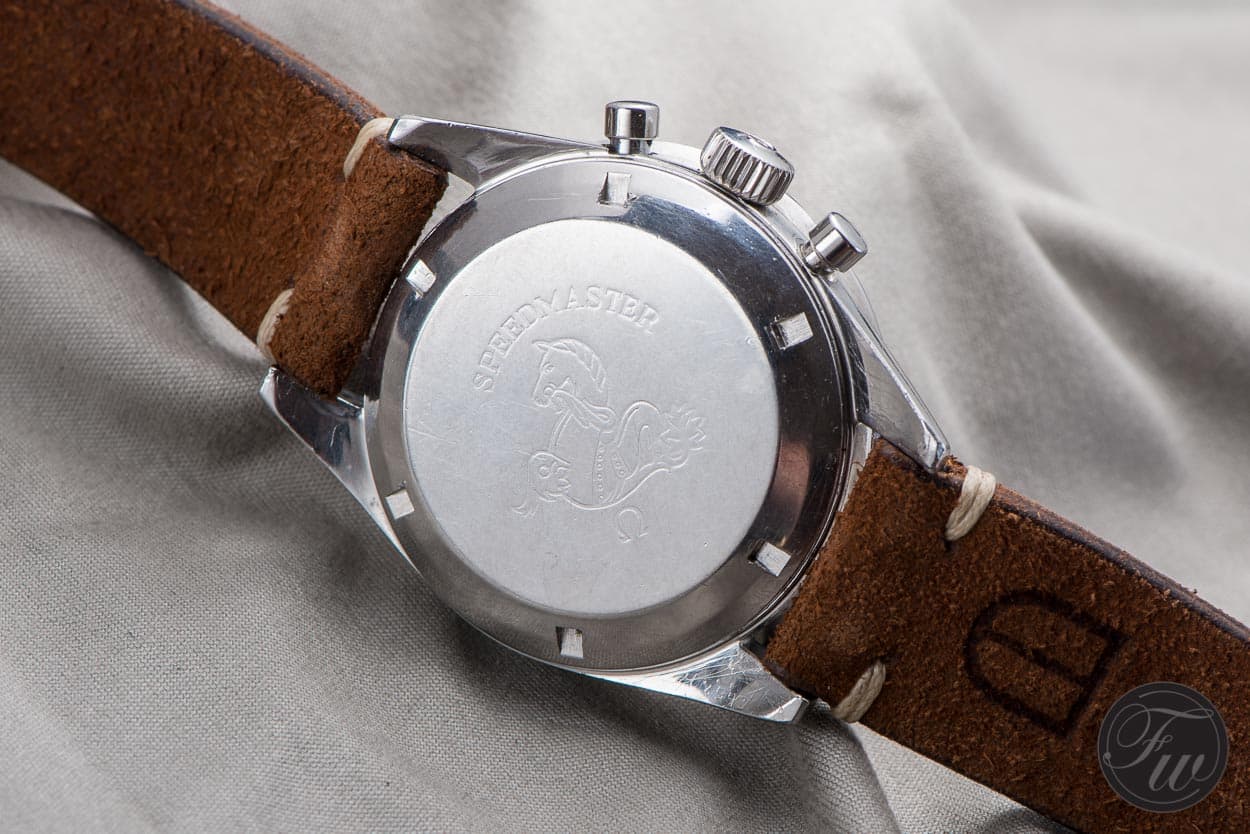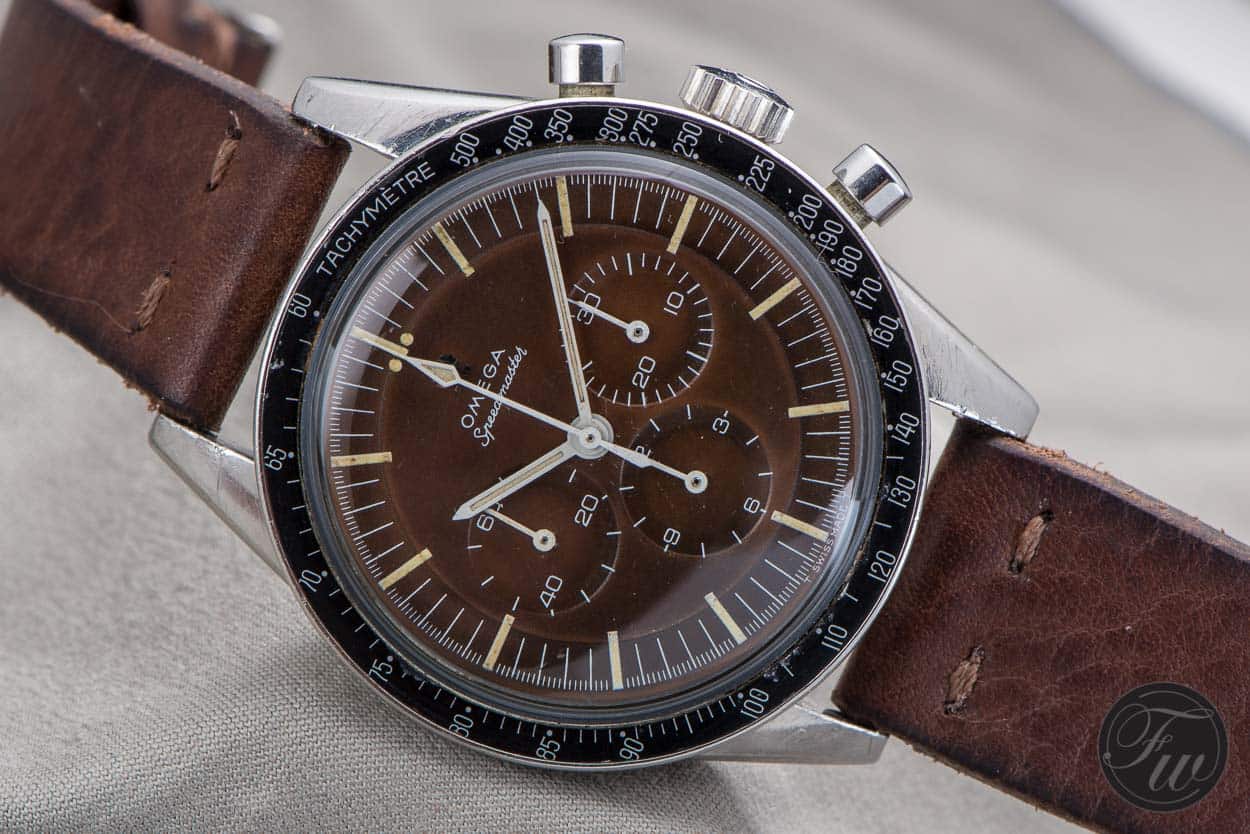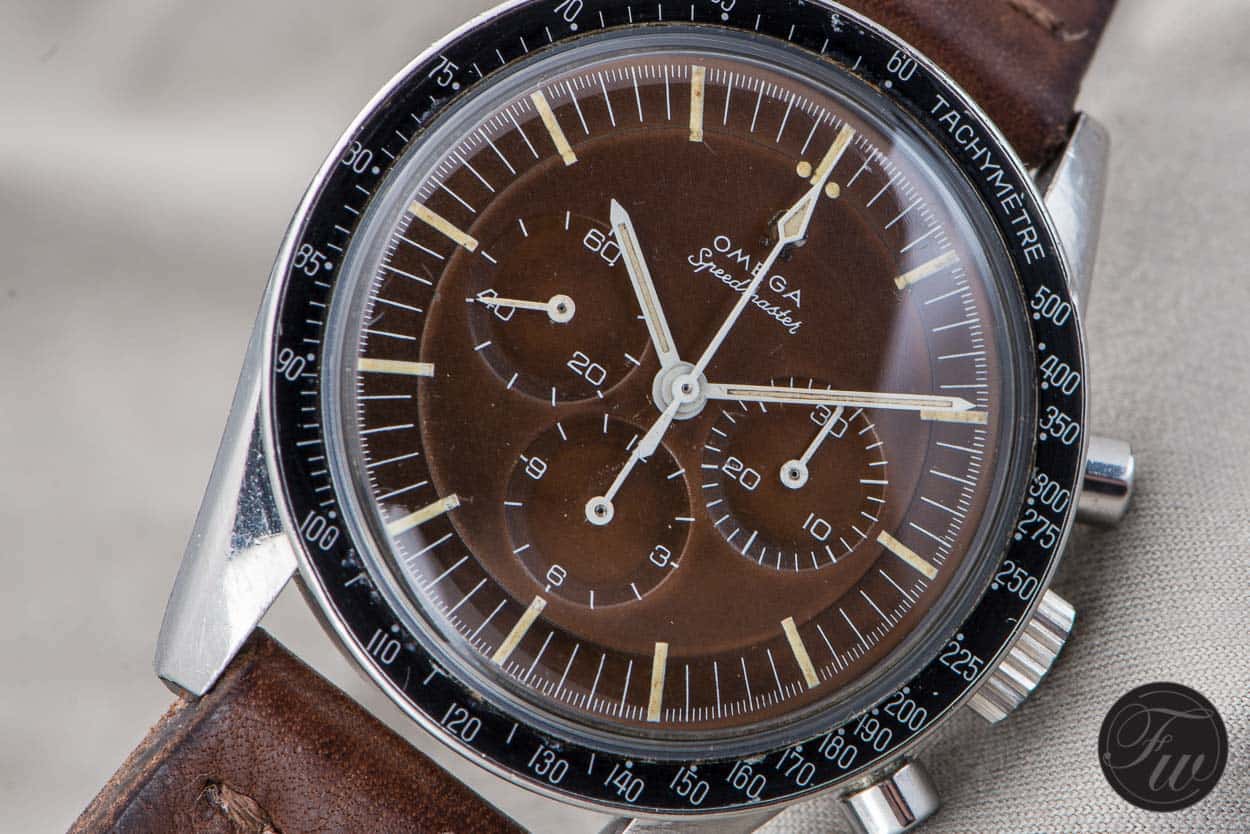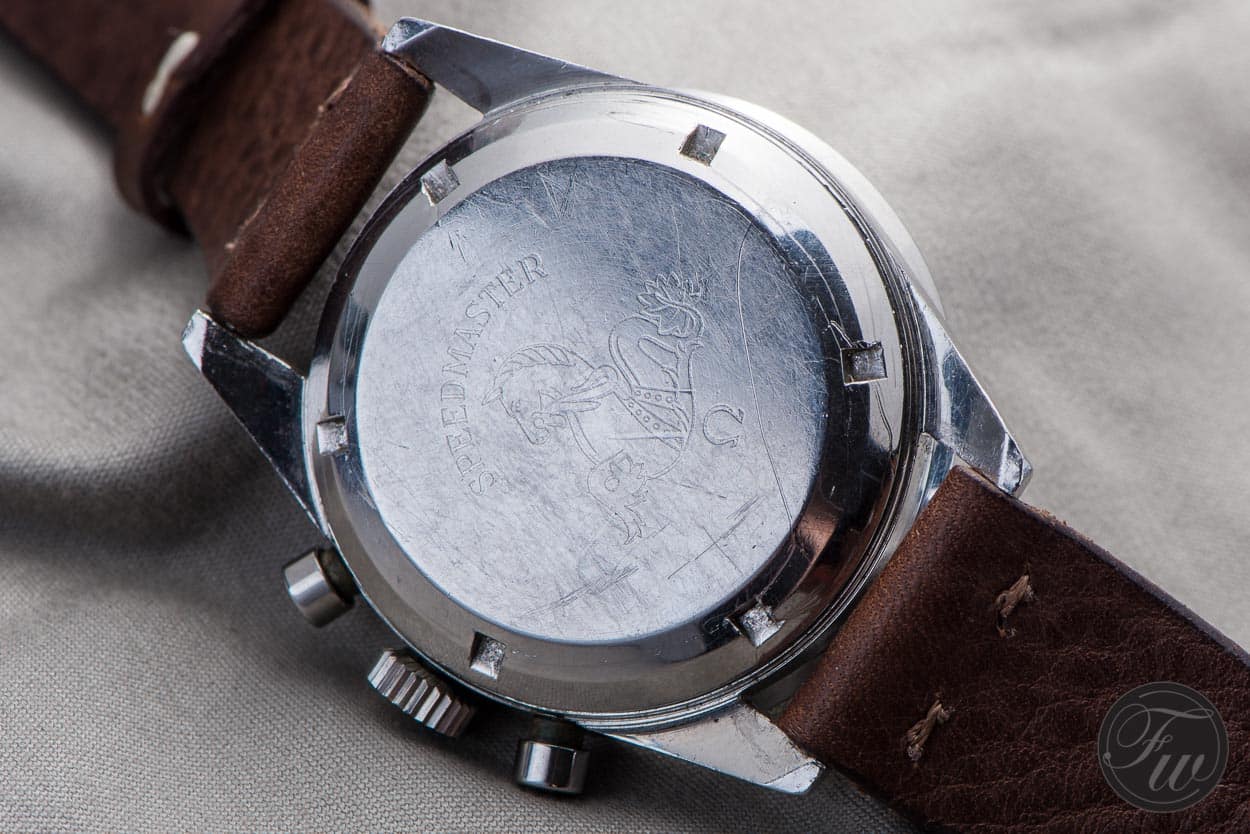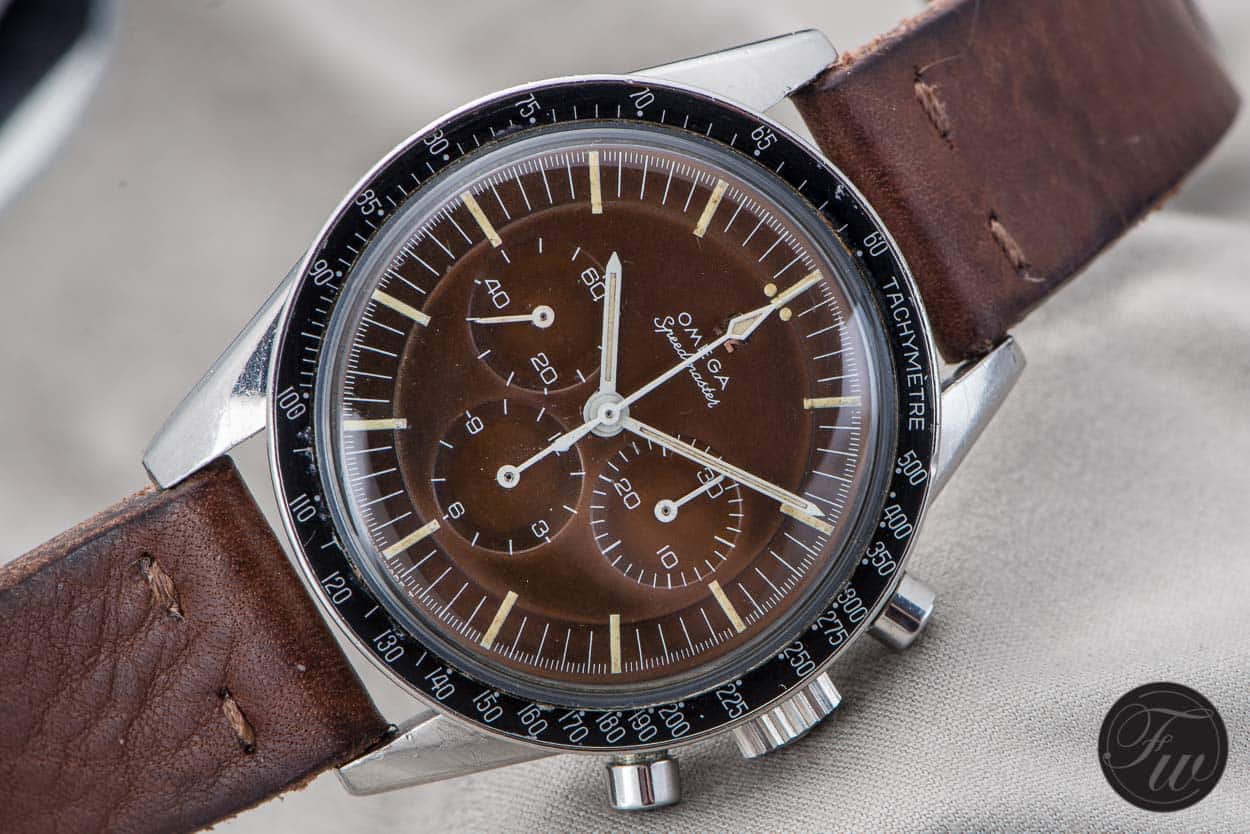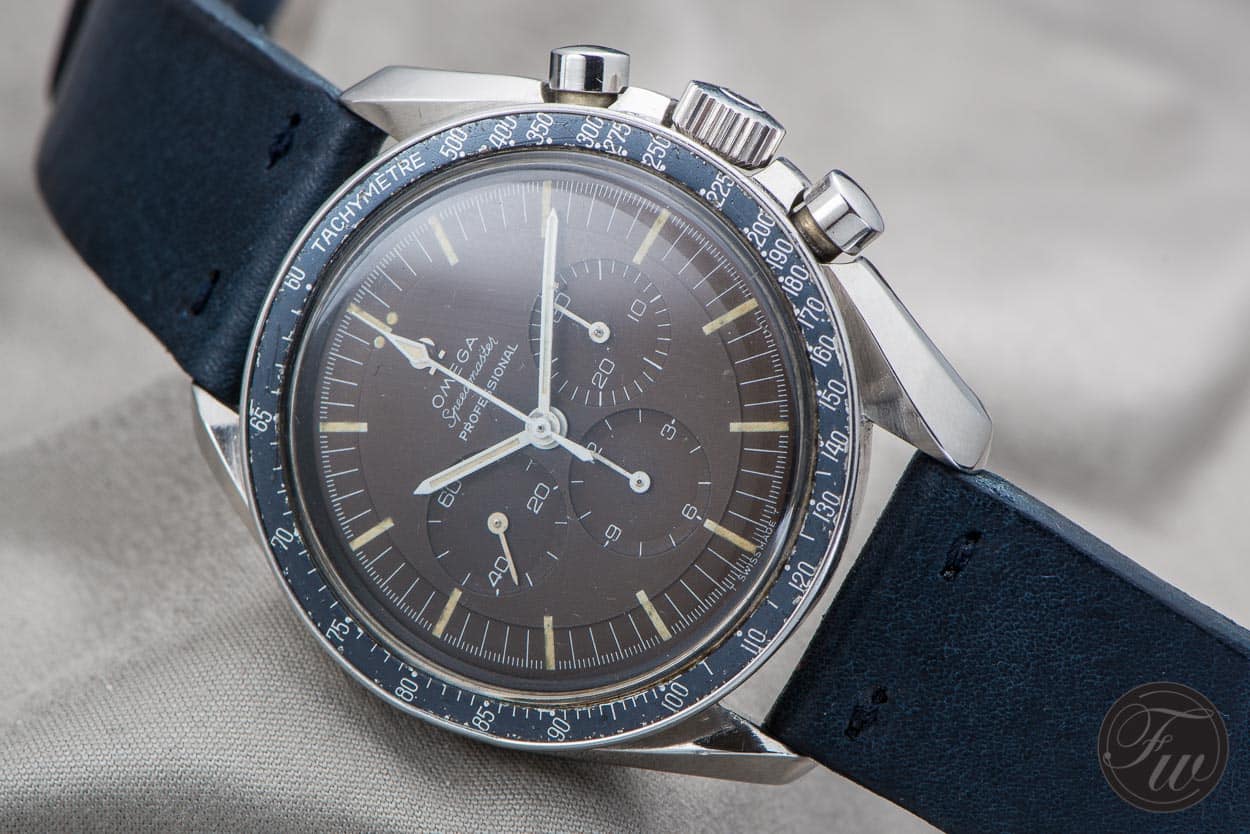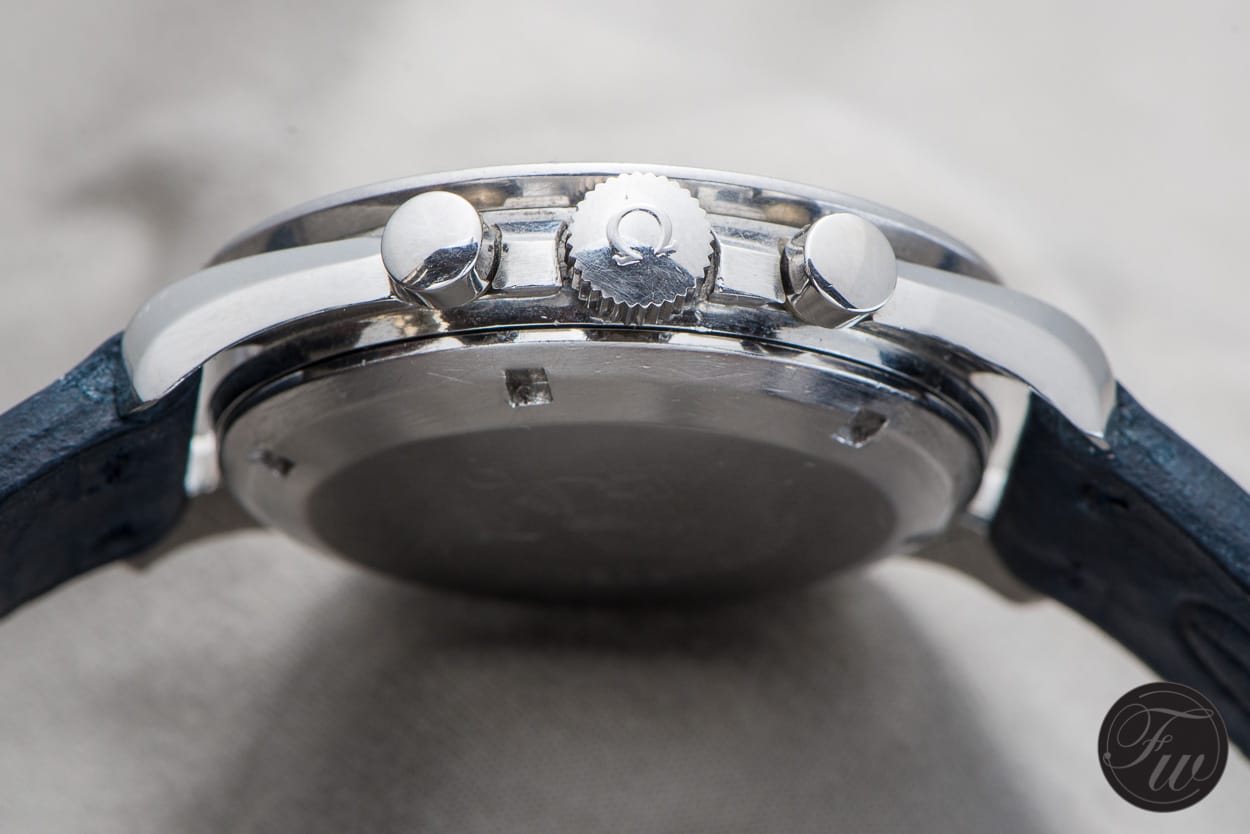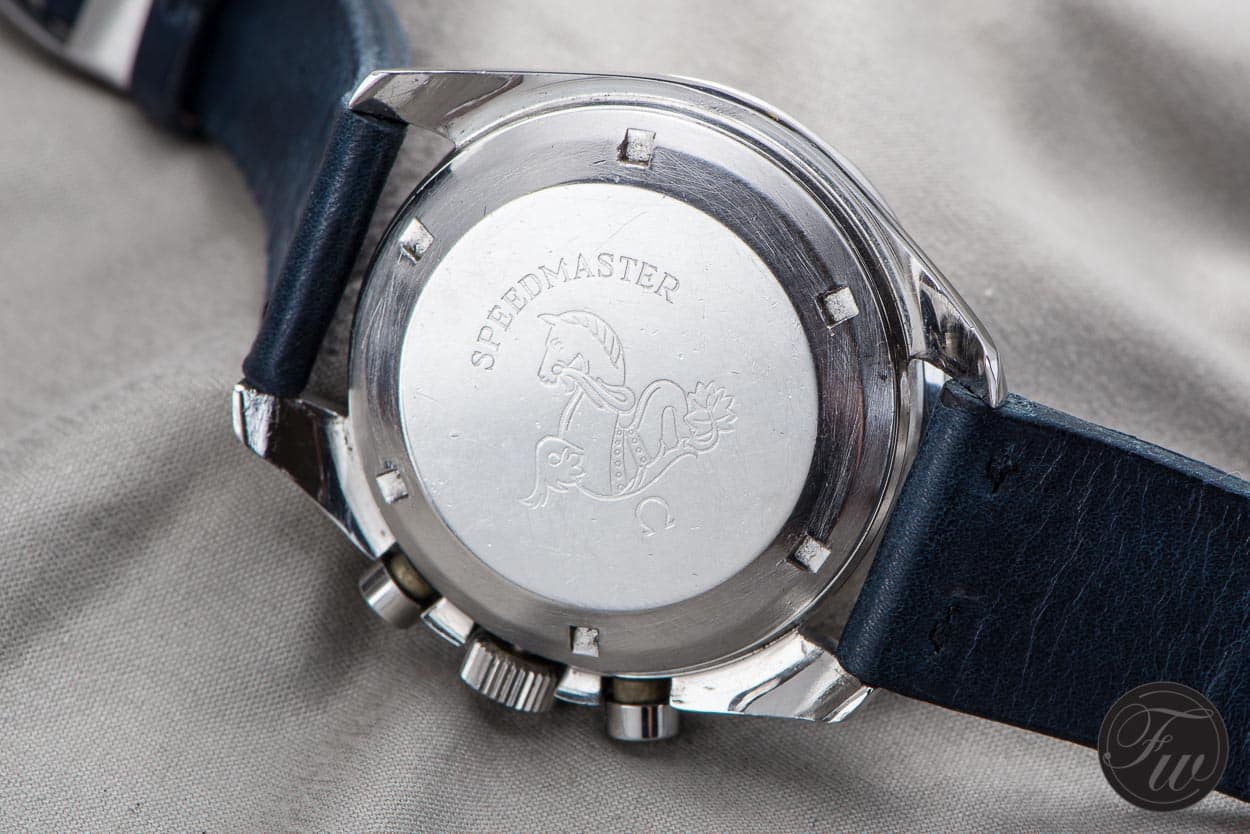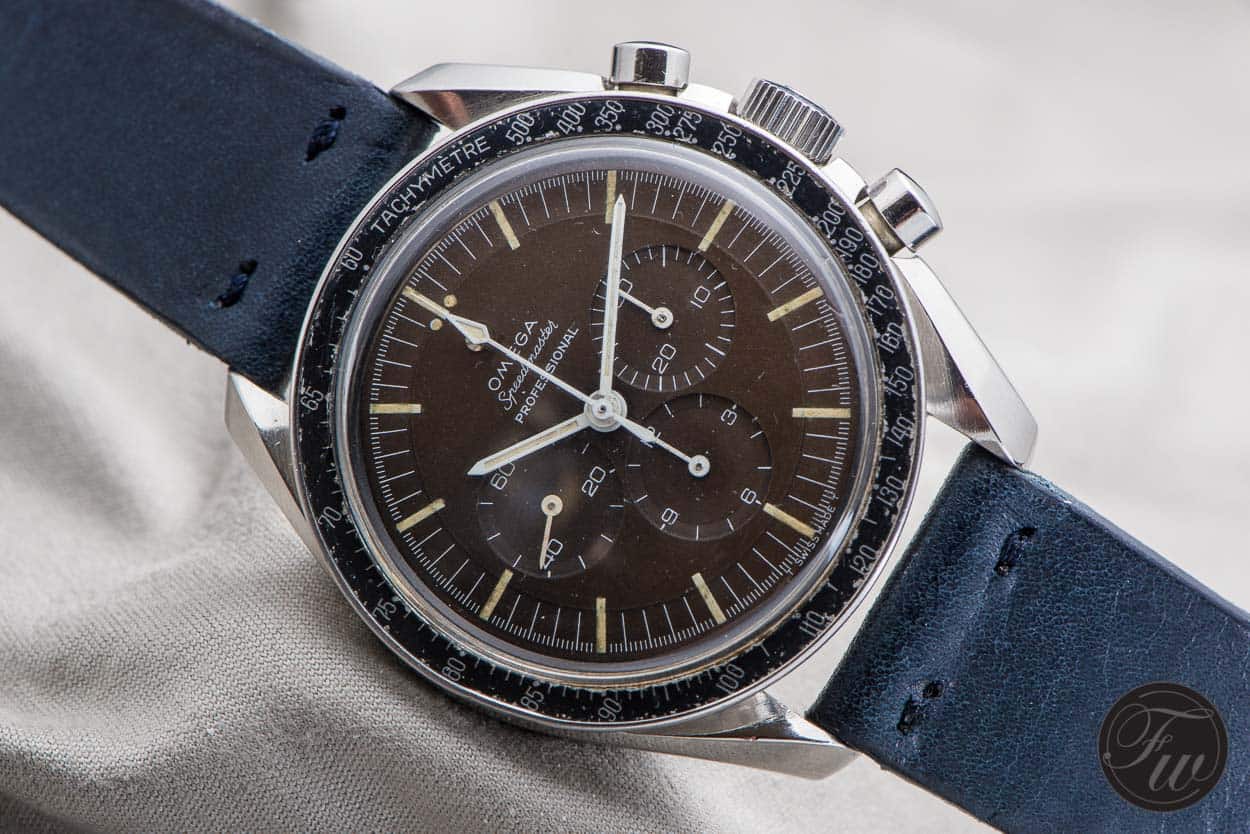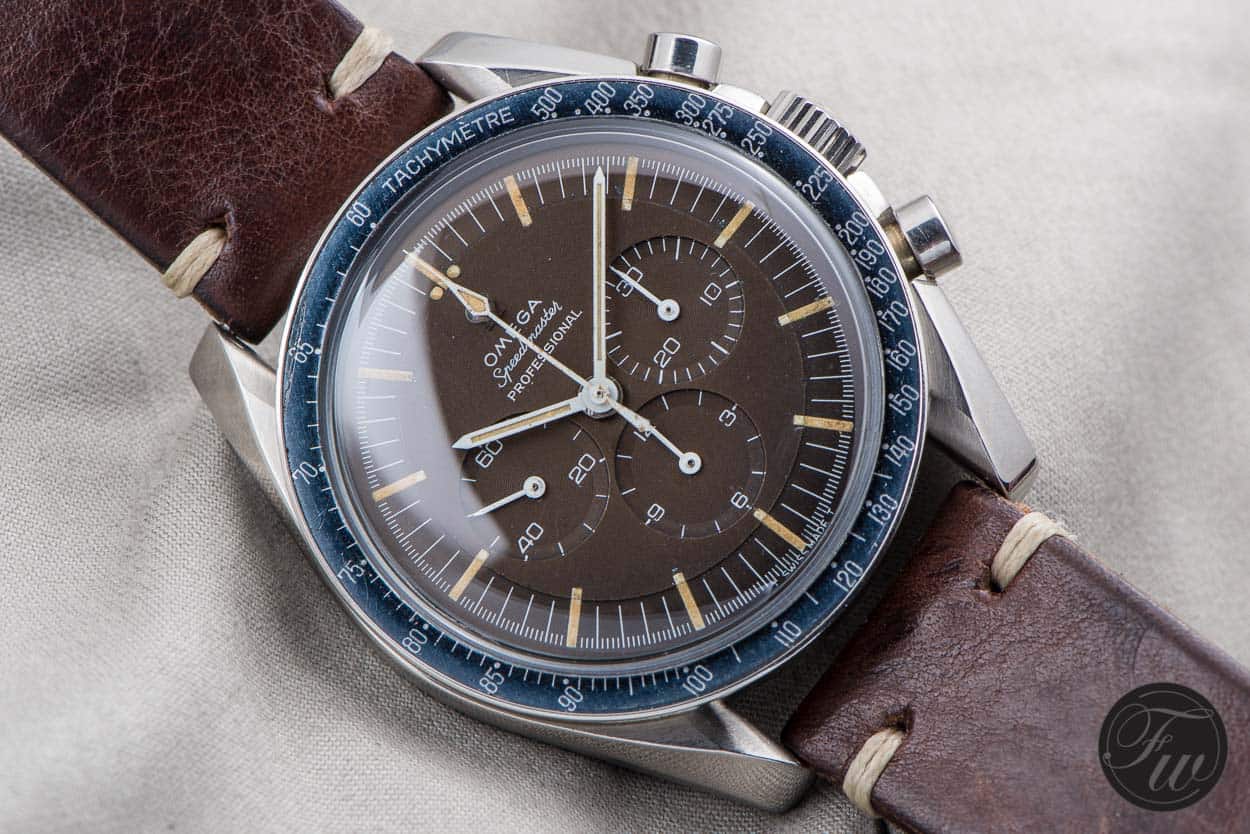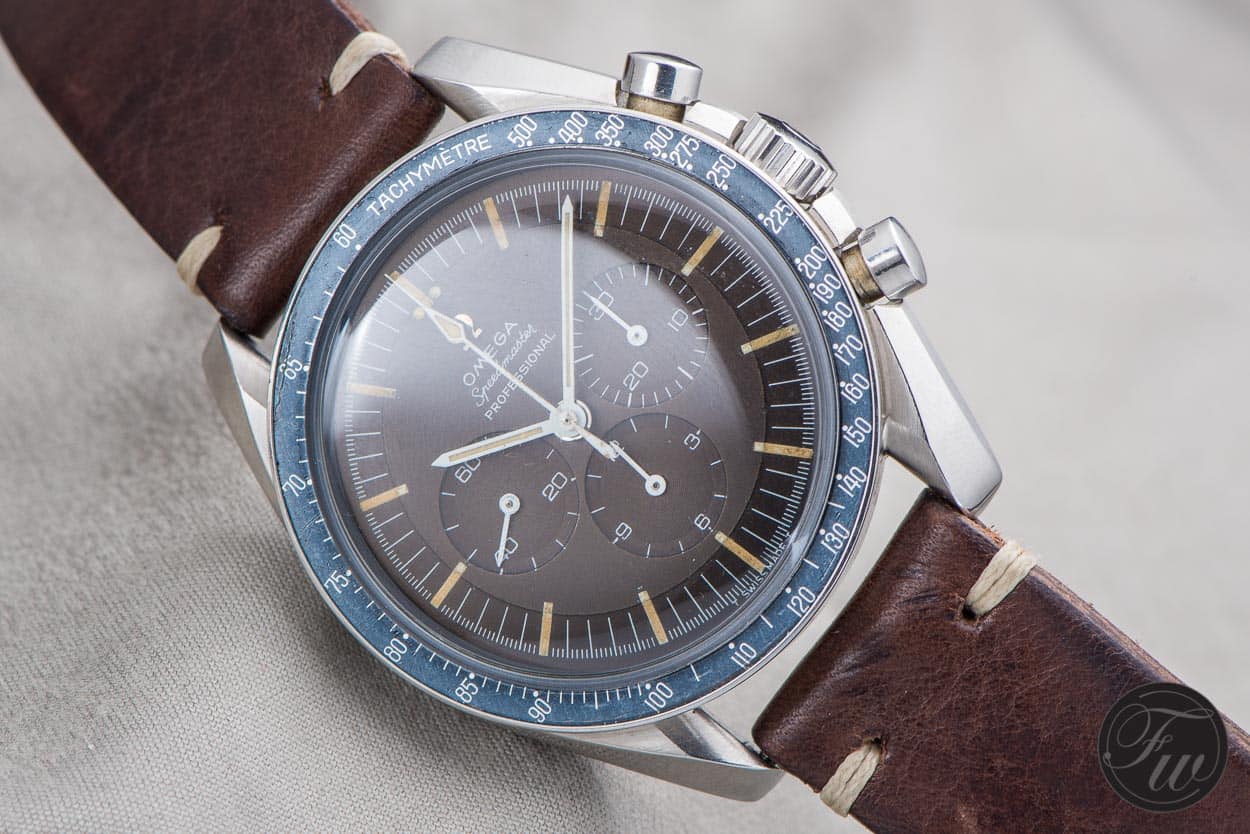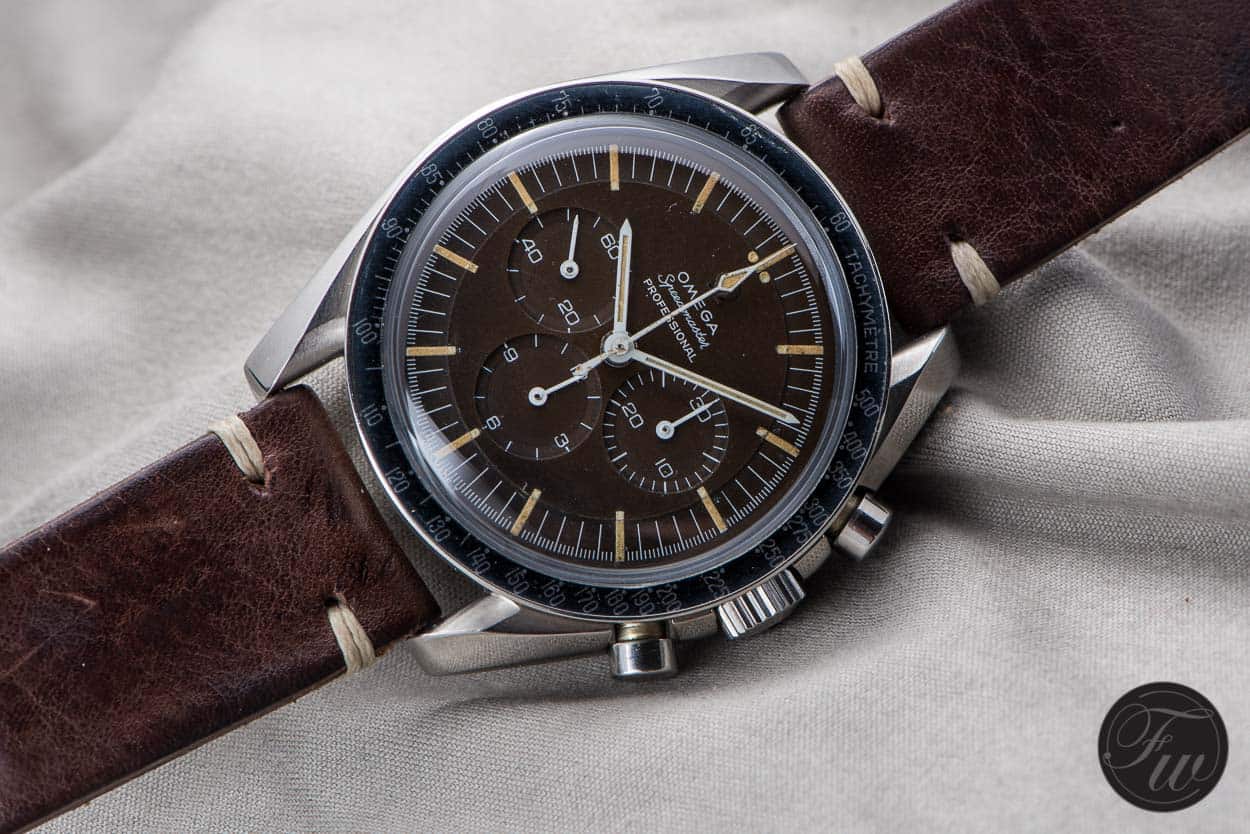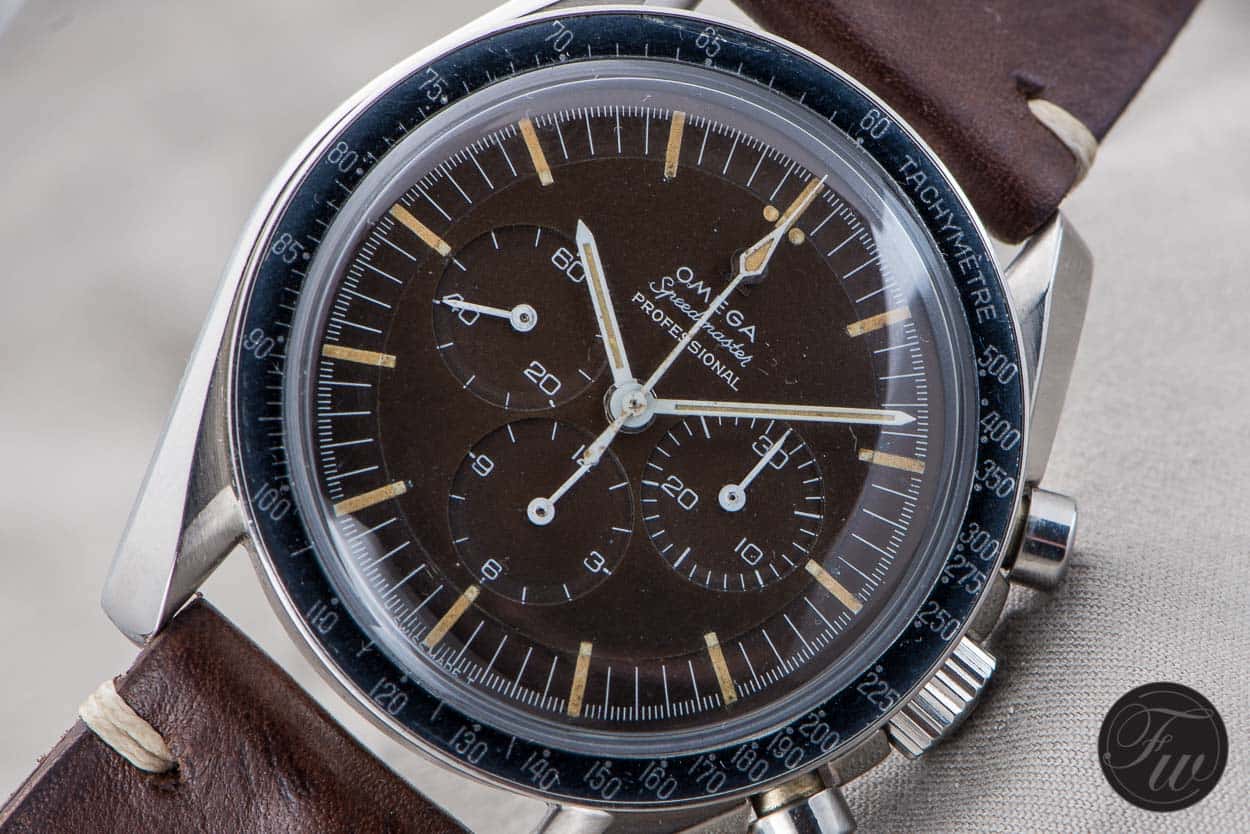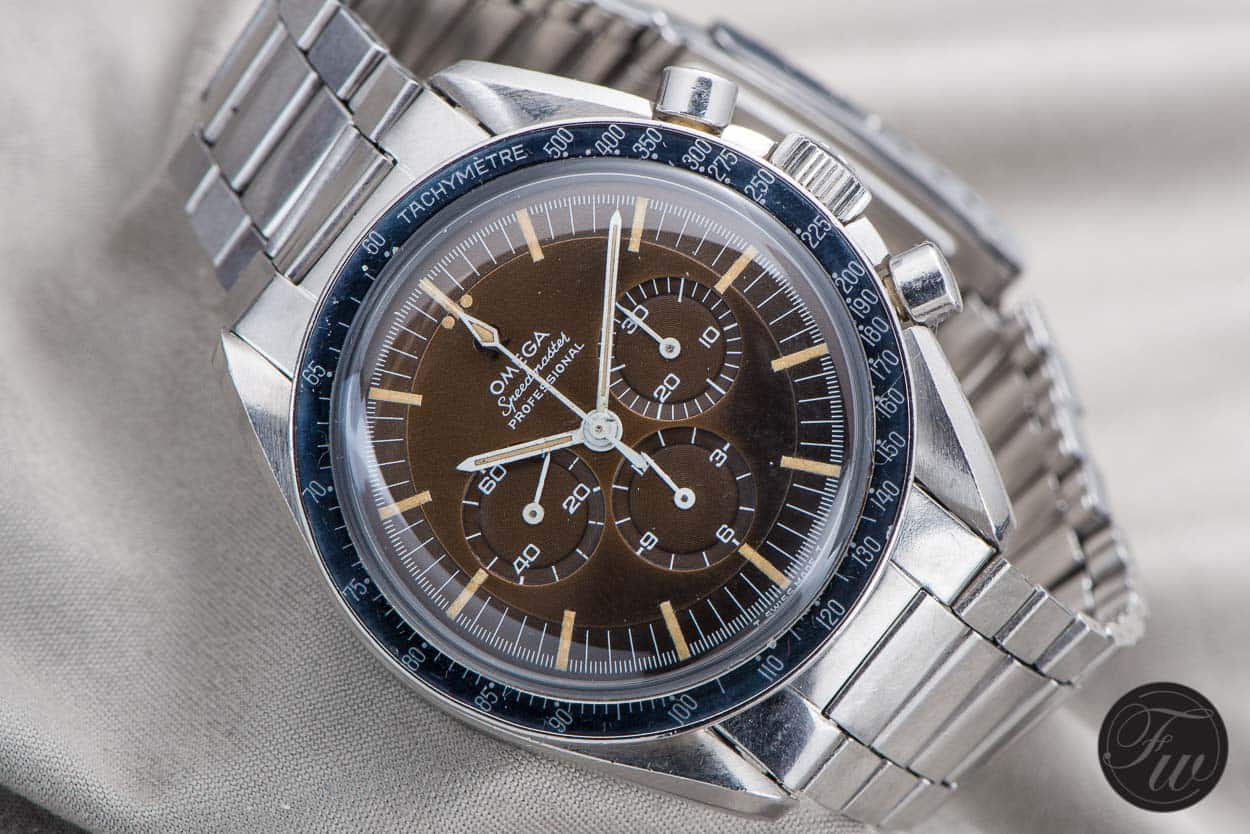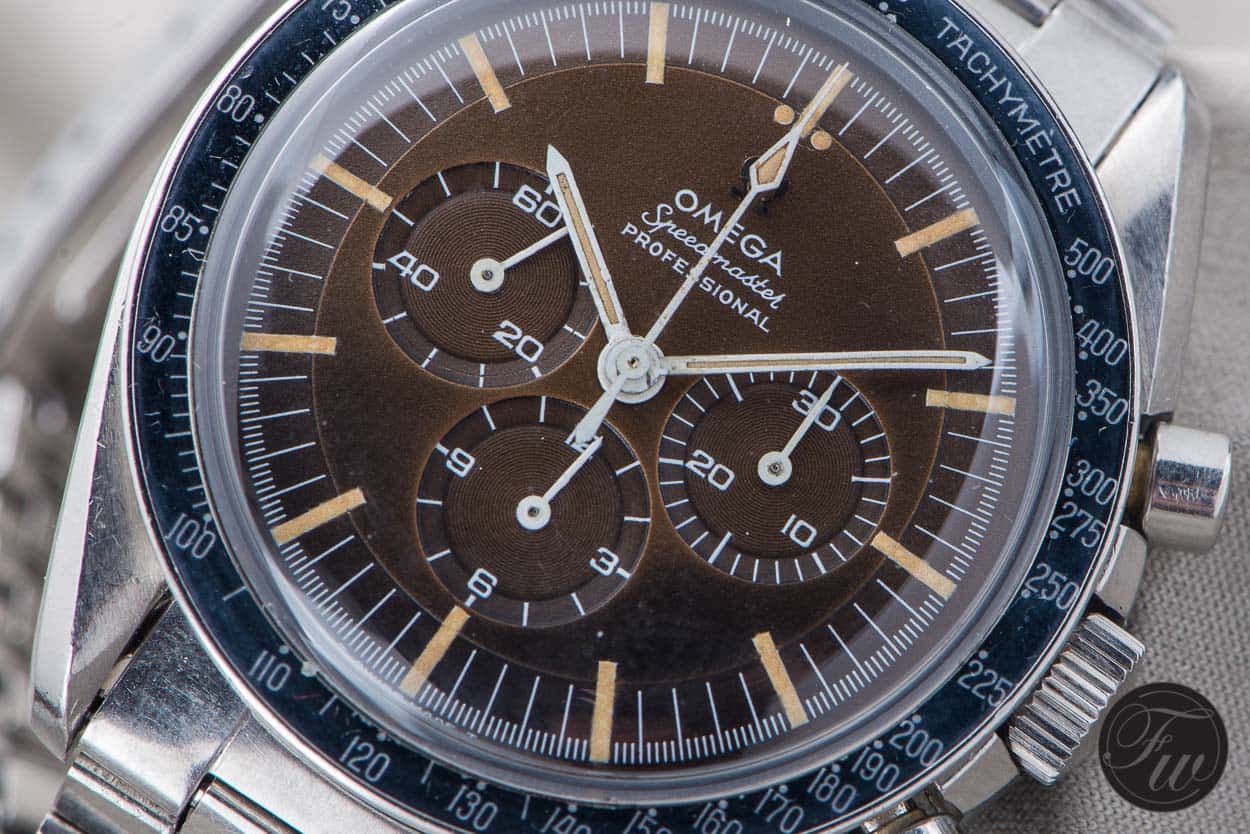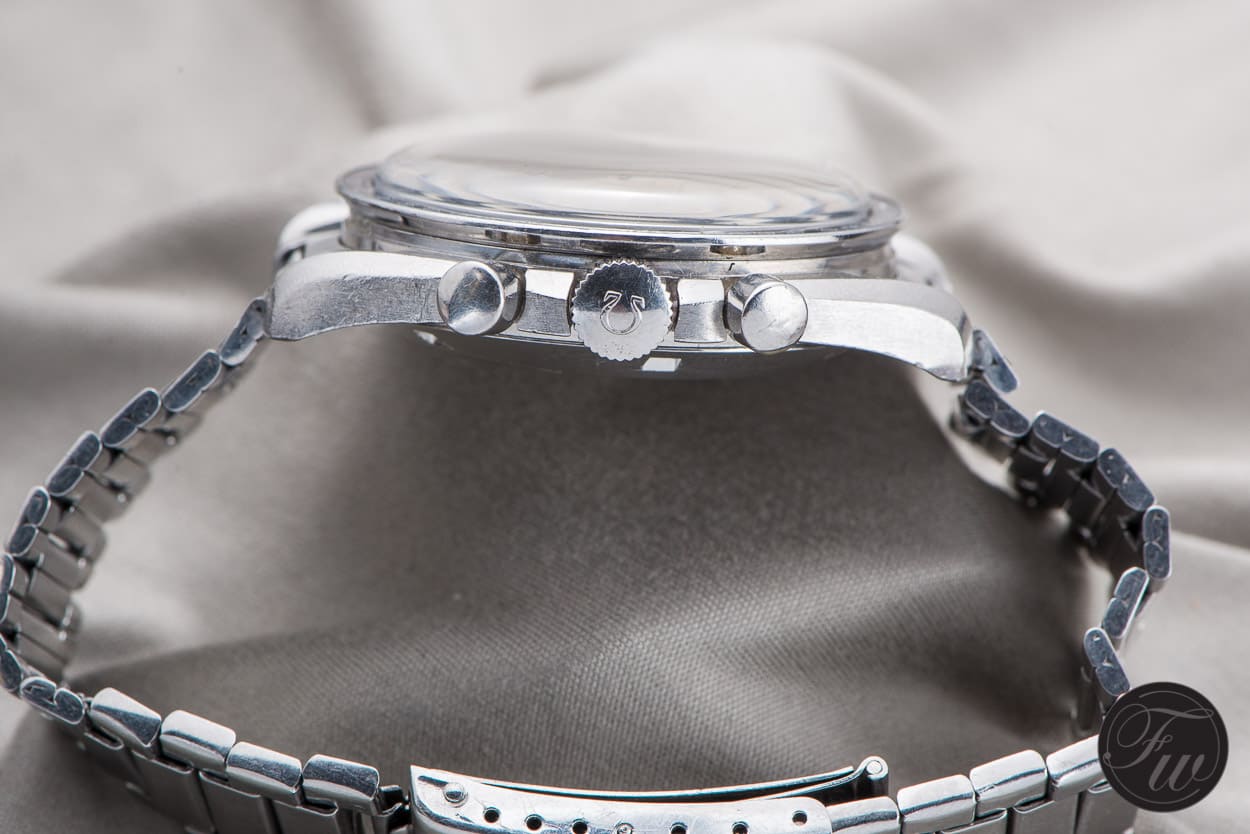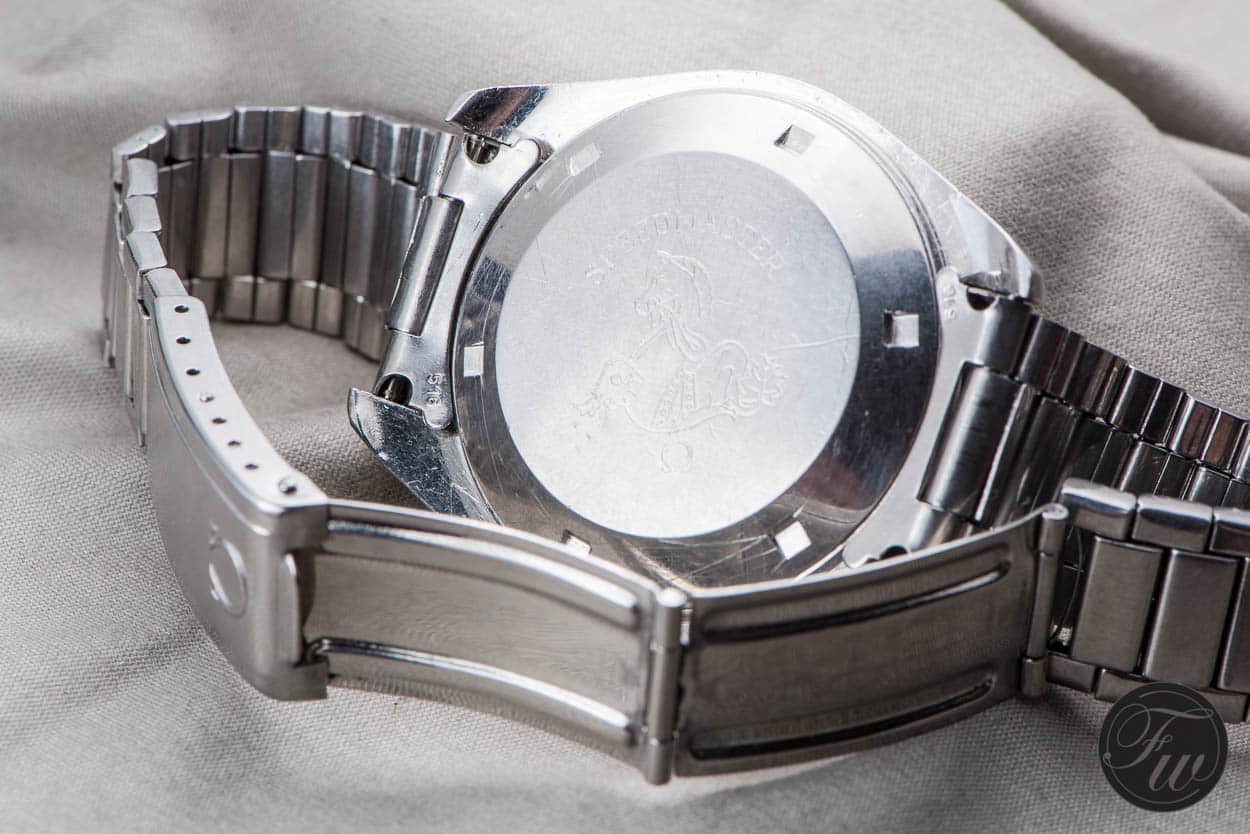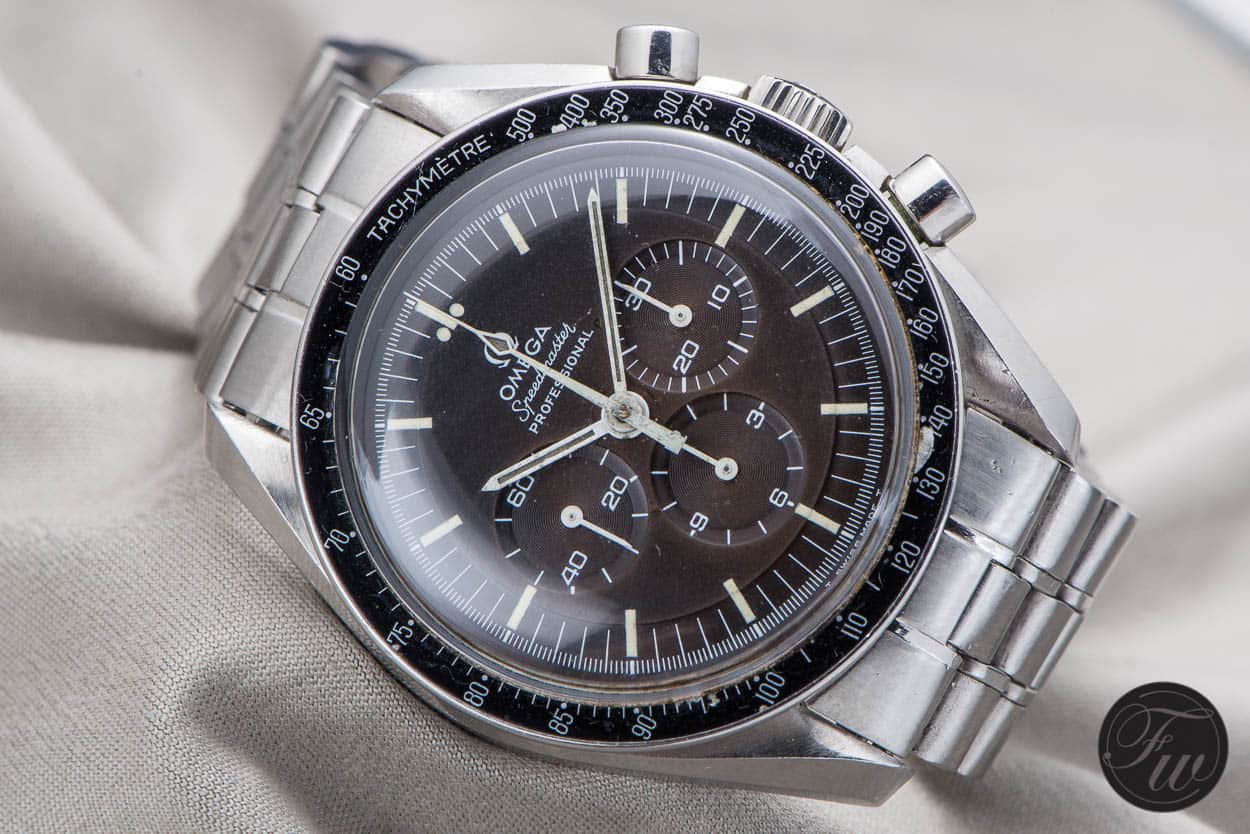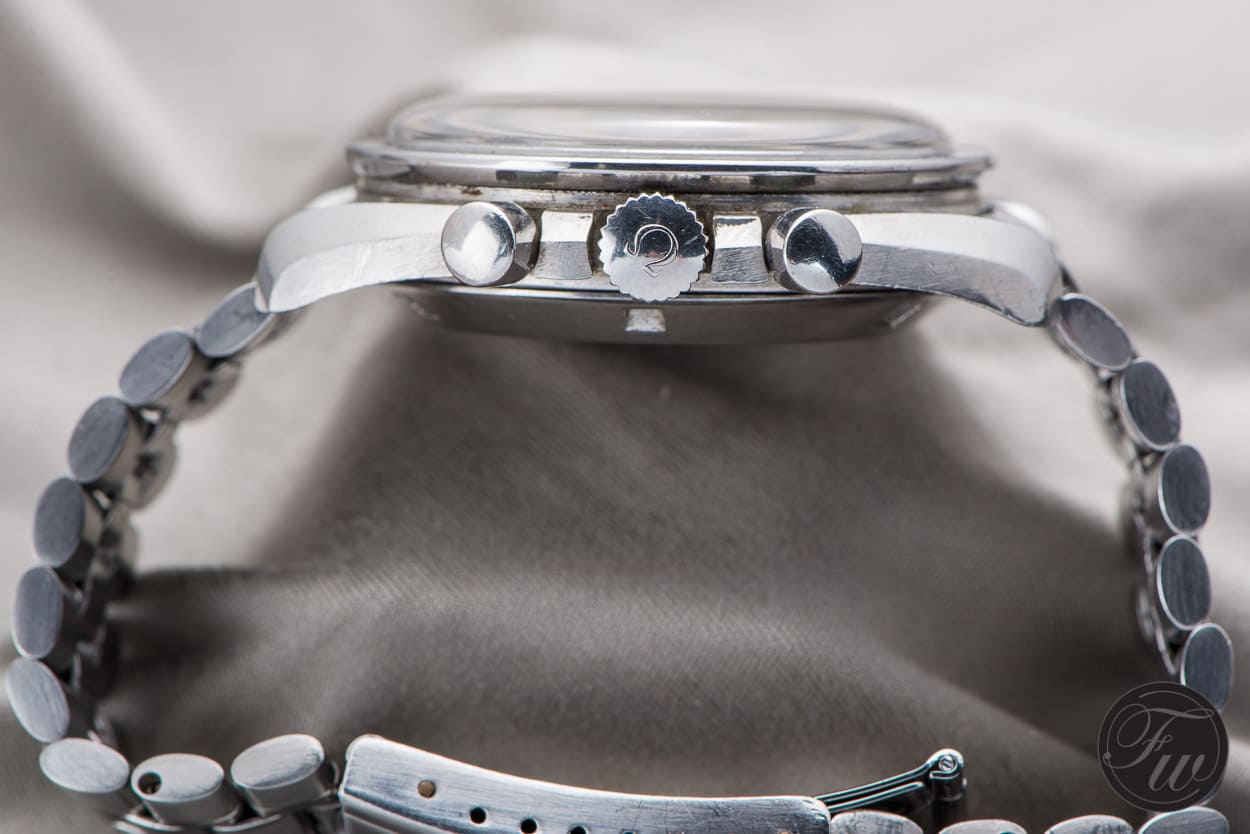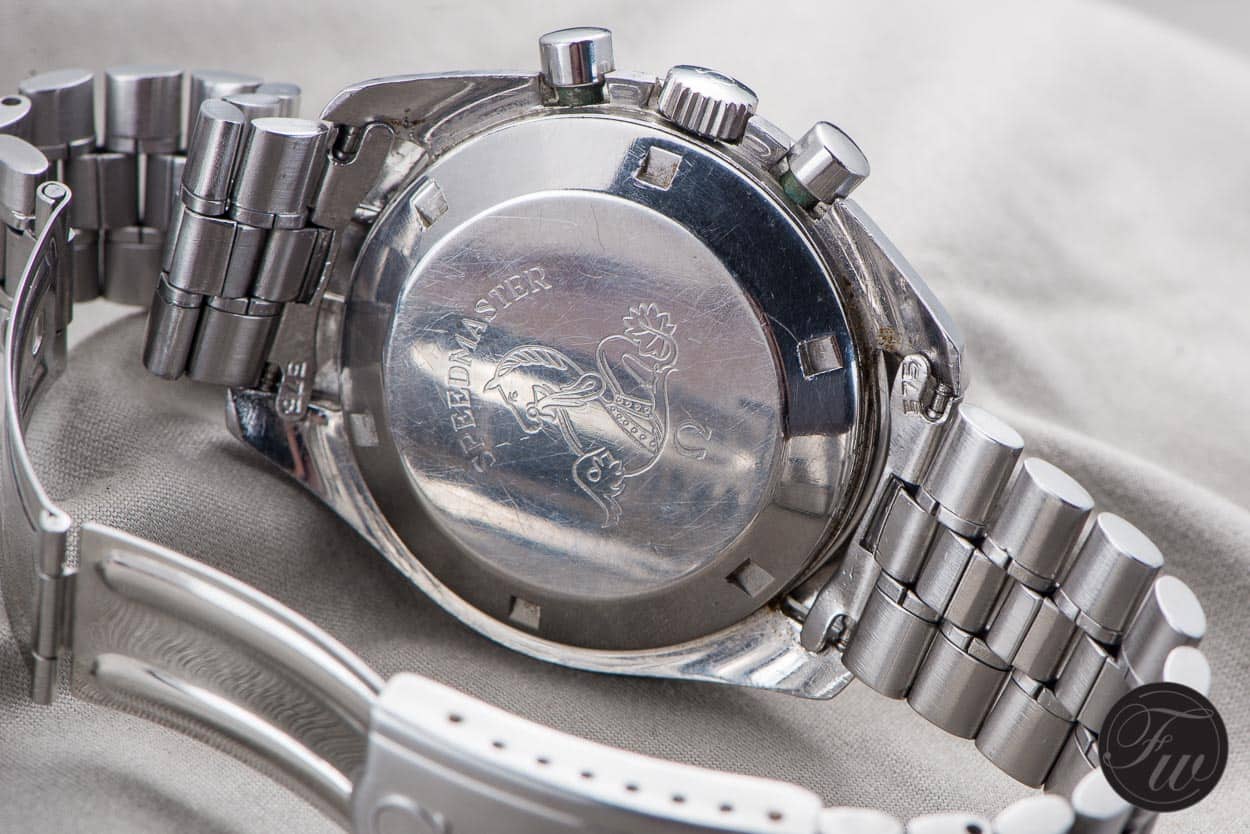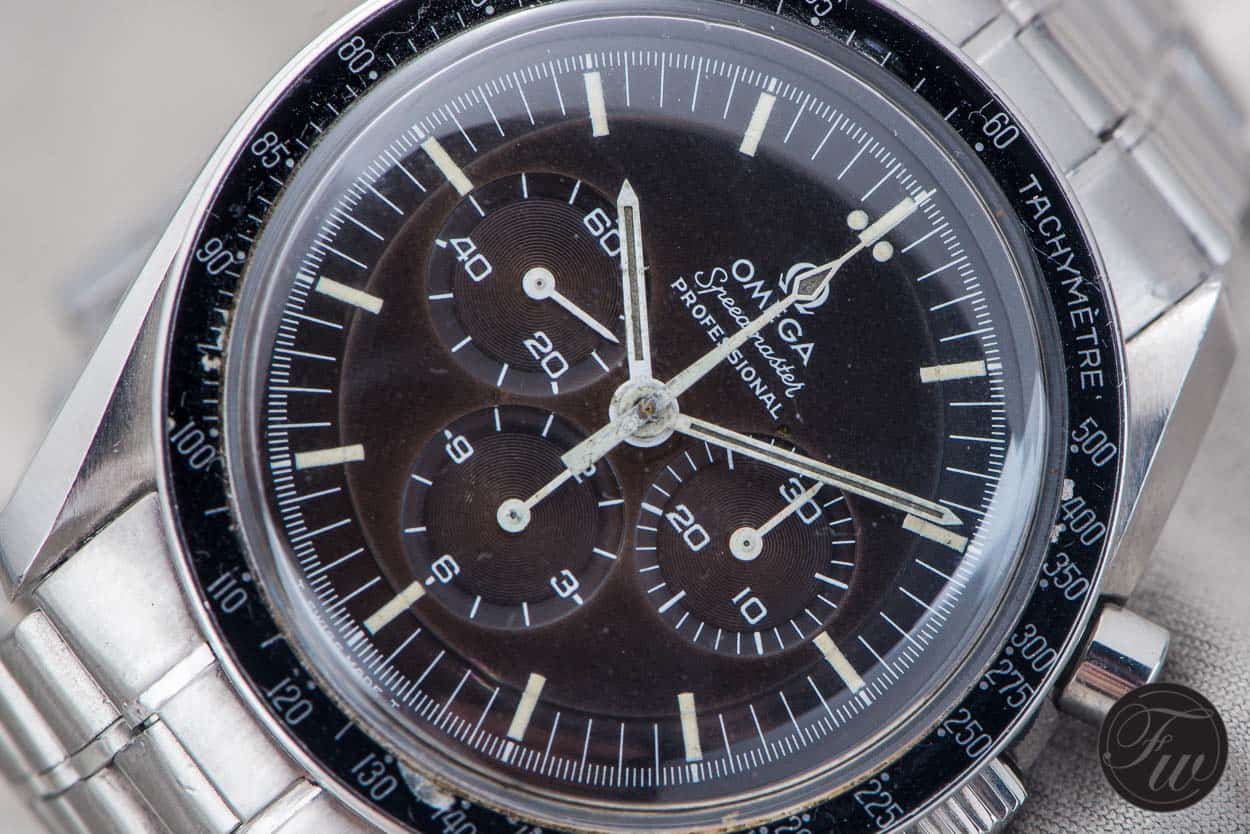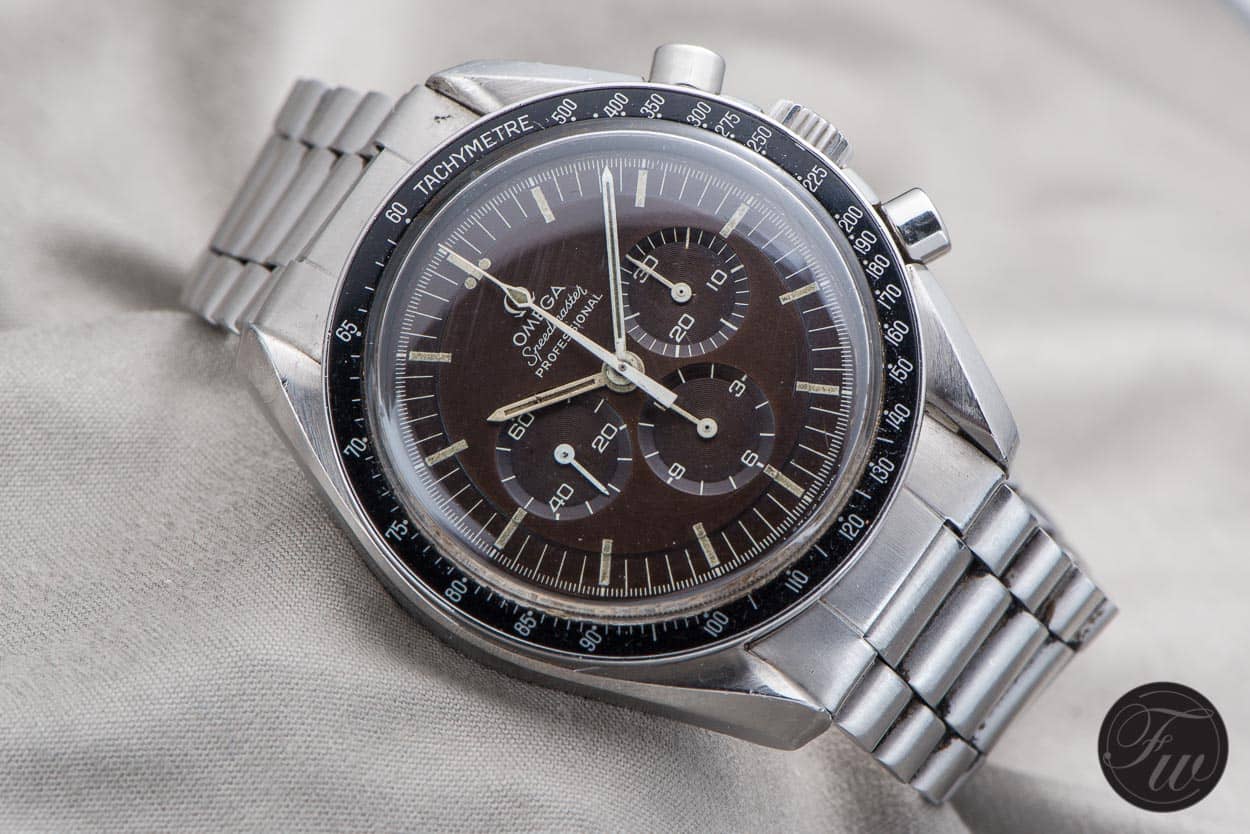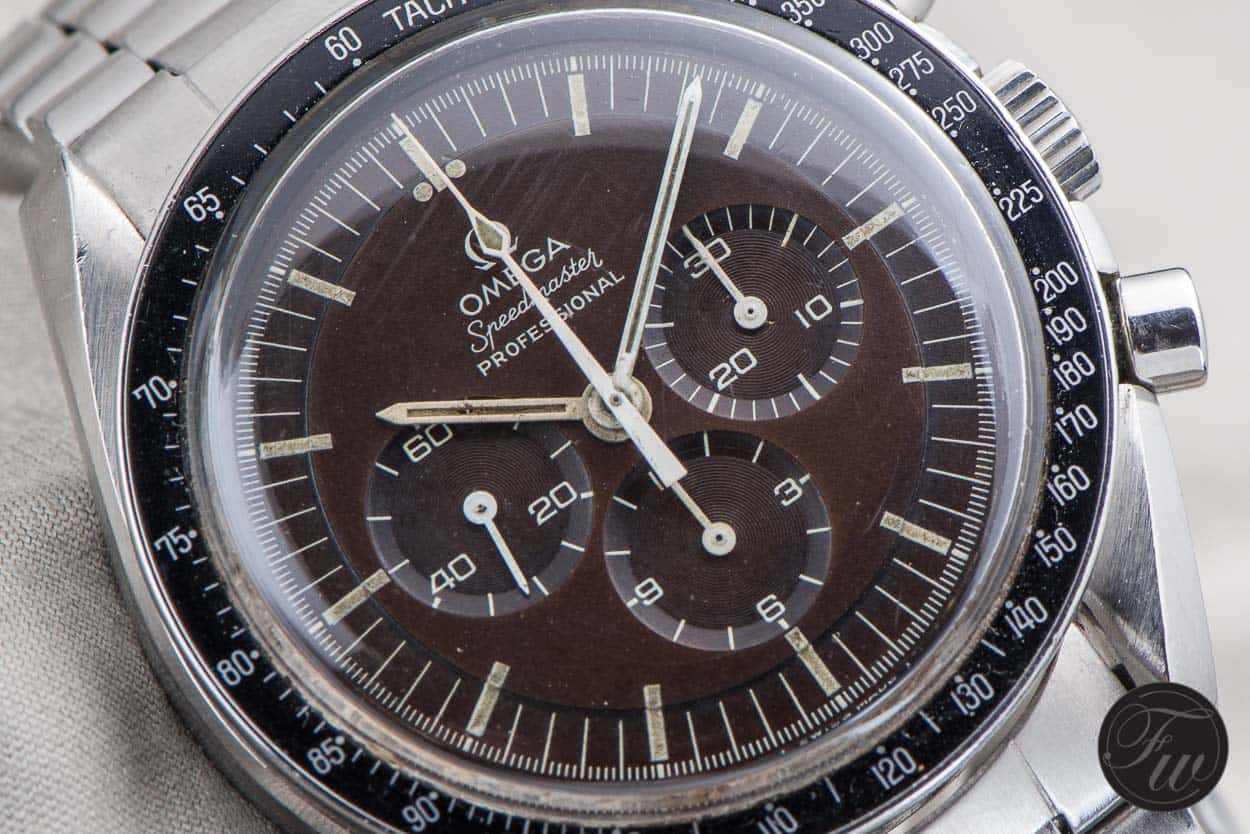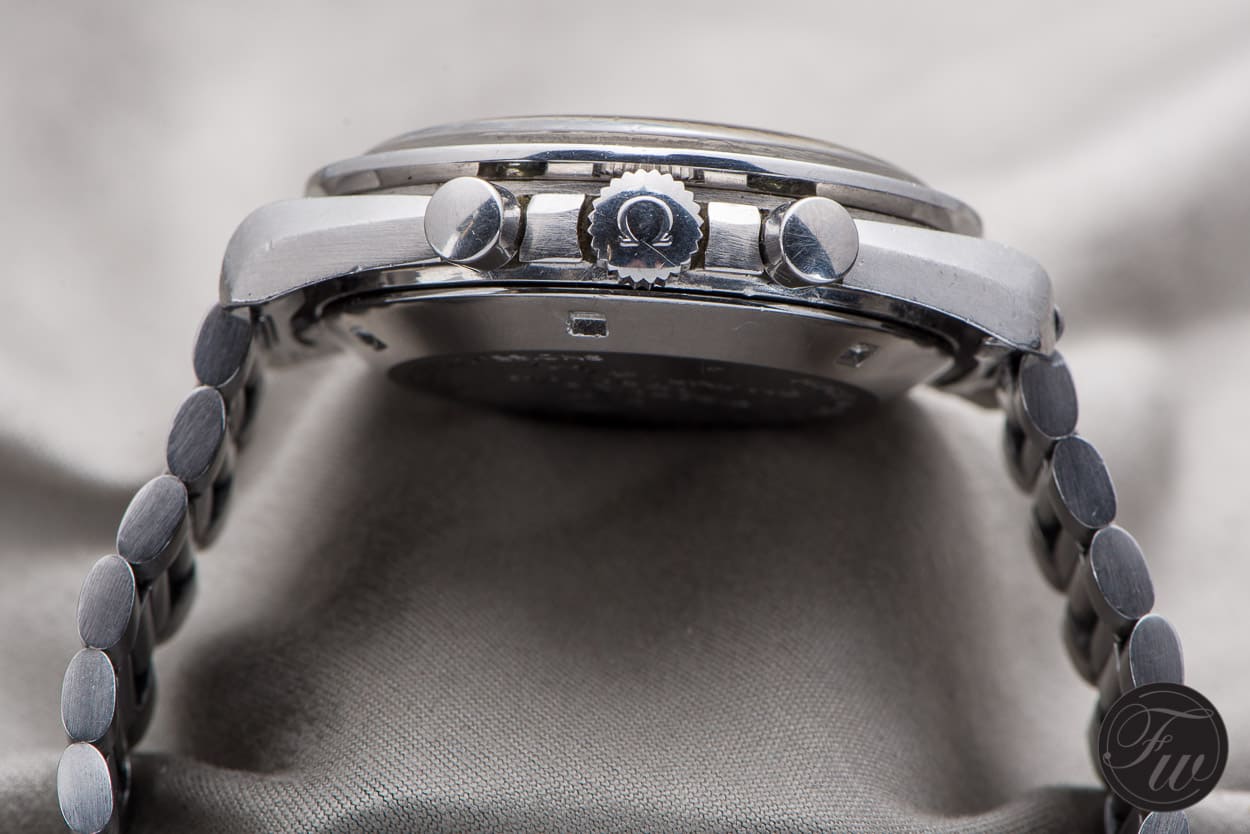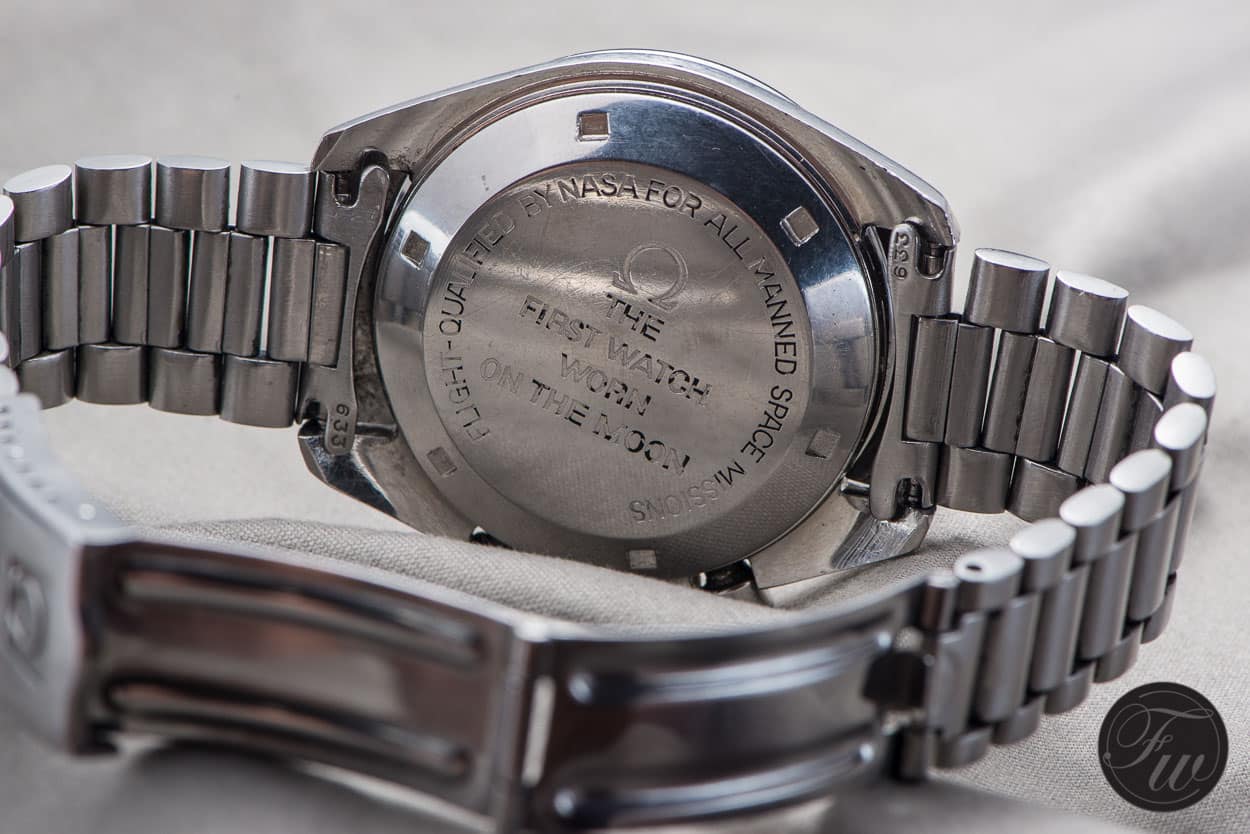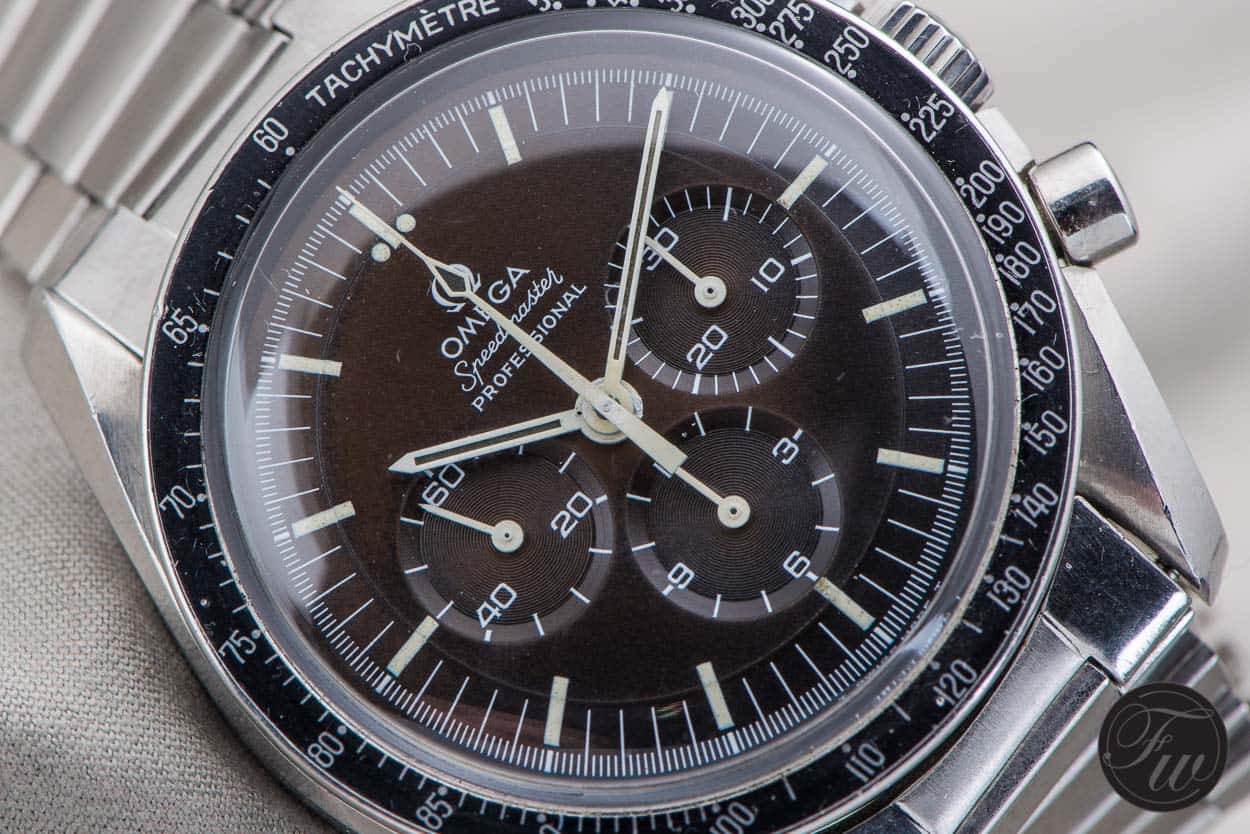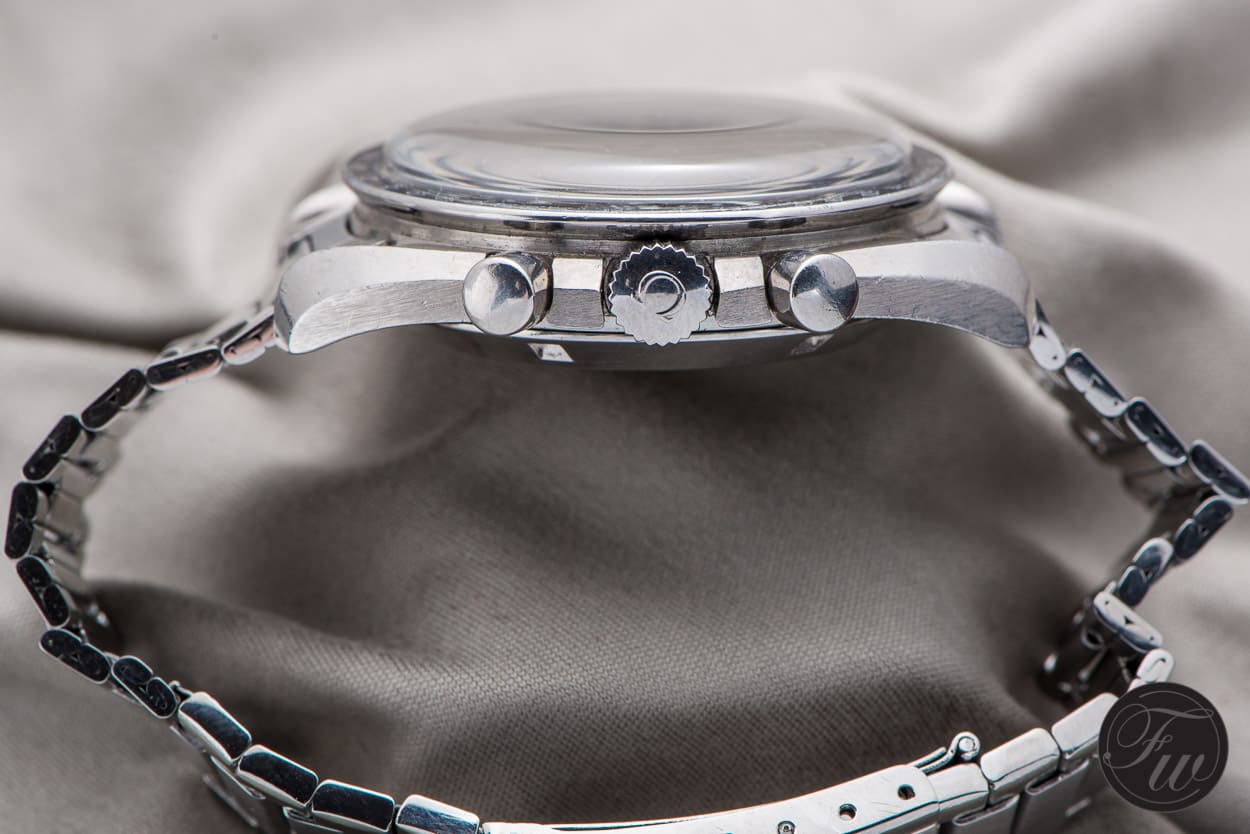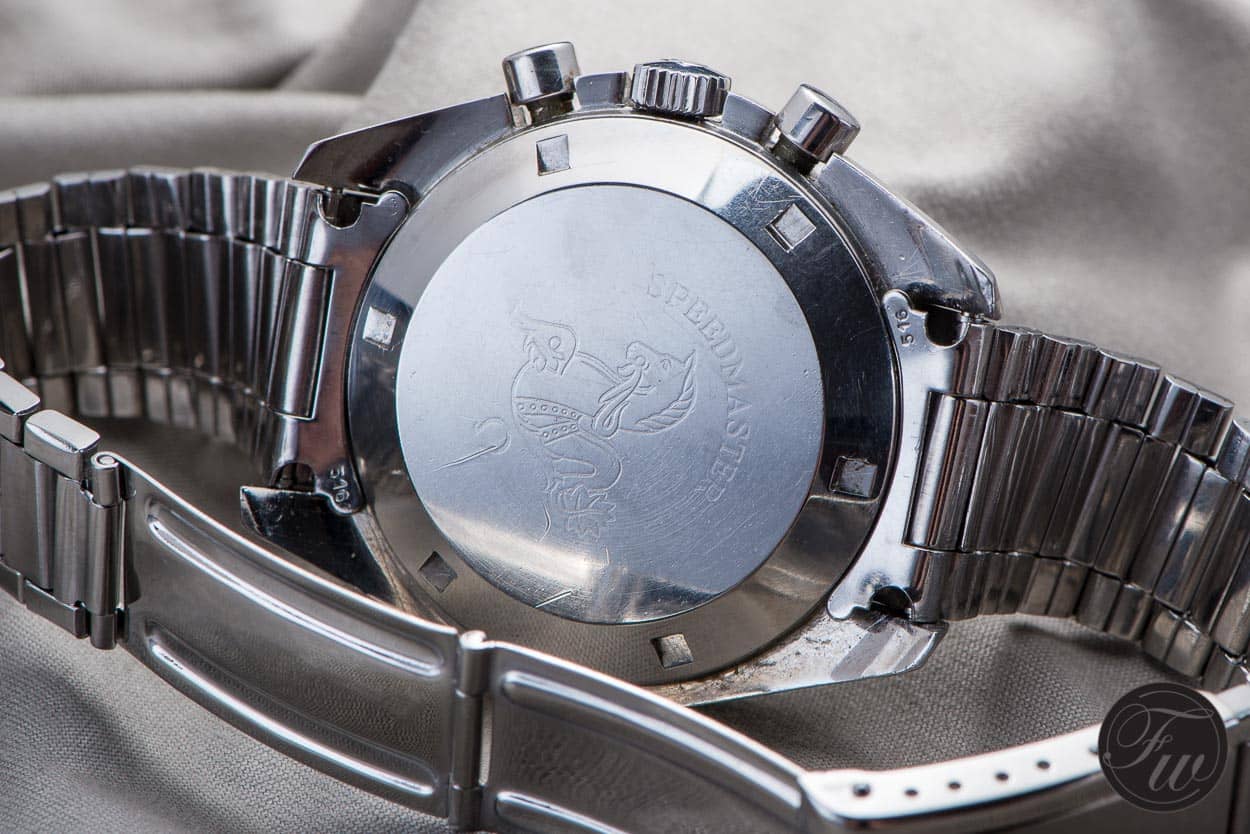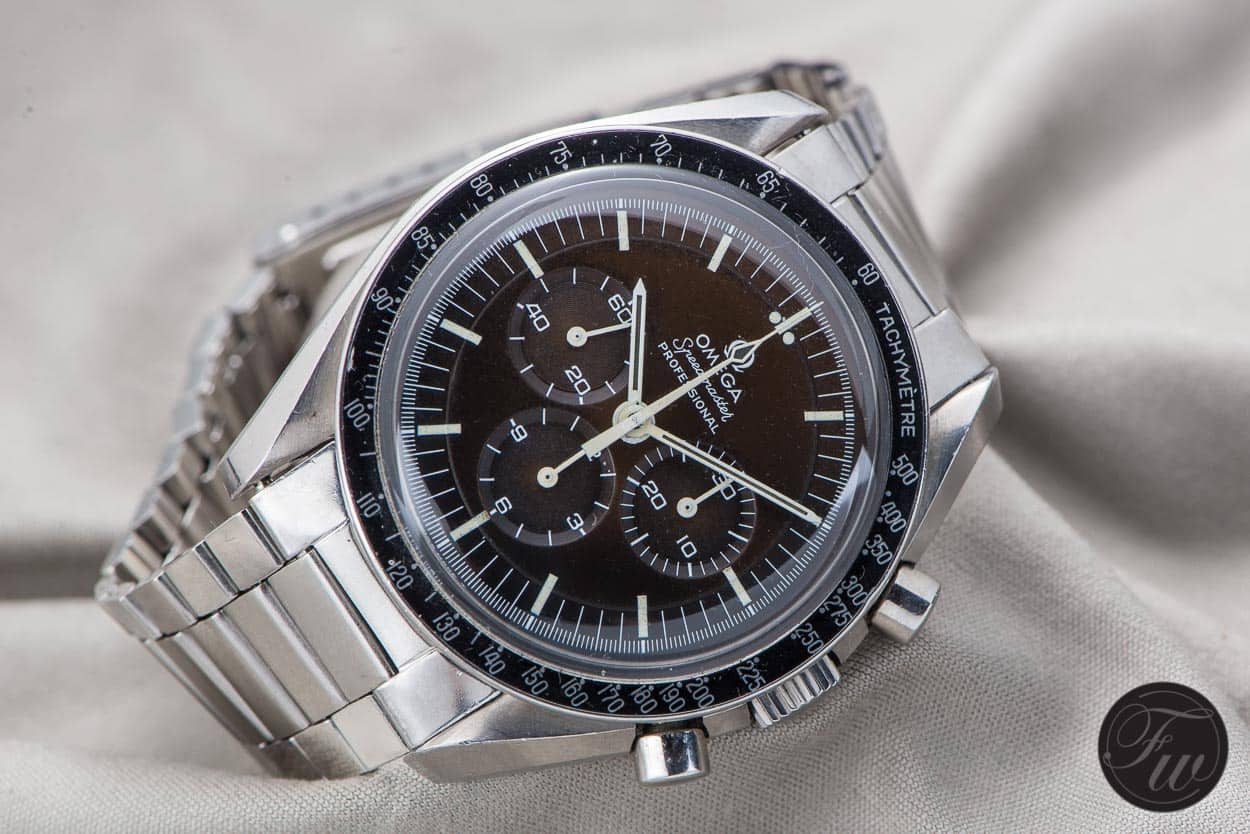Omega Speedmaster Tropical Dial Parade – 12 References To Show
About two years ago, Bert and I visited the boutique of the Davidoff Brothers in Geneva, and were able to capture a number of tropical dial Speedmasters. Among them, a CK2915 with tropical dial, but also the later CK2998, 105.003, 105.012, 145.012 up till the 145.022 (first watch with caliber 861). In total, we had 12 references in front of us, each with their unique (aesthetic) features.
Because we know you love the Speedmaster and especially those with a tropical touch, we put this article in the spotlight once more. Enjoy your dose of #SpeedyTuesday.
Omega Speedmaster Tropical Dial
Some of the Speedmaster dials have the tendency to fade to brown. There are different shades of brown to discover, from a very dark – almost non-identifiable – tone to a very light brown ‘milk chocolate’ colour. These haven’t always been as popular as they are today, but some collectors are very keen on buying them as they are rarer and have this unique appearance. Personally, I haven’t been a fan of all brown dials, I prefer them at least to be even in one colour (black or brown) and some of these watches aren’t. They have a clearly visible transition on the dial from black to brown, some from left to right or vice versa, others from top to bottom or vice versa. Some even diagonally. I know that other collectors appreciate this more than I do, obviously.
Tropical Dial Parade of Twelve Watches
When Bert and I were visiting Roy and Sacha Davidoff, they showed us something quite rare. 12 awesome Speedmaster tropical dial pieces, from the first reference CK2915 till the caliber 861 reference 145.022-69. Sure, we have seen our share of Speedmaster references, including those with tropical dials, but all-together is quite a rarity. Let’s have a look at each of these watches.
Omega Speedmaster CK2915-2 ‘FAP’ Tropical Dial
The CK2915 was the first generation of Speedmaster watches, this -2 is actually very similar to the -1. Produced between 1958 and 1959 (then the CK2998-1 was introduced). The chocolate brown dial looks amazing. The far end of the dial becomes a bit darker again of this Speedmaster tropical dial. The other special feature about this CK2915-2 is the caseback, it has the FAP inscription. You can read more about these FAP-issued watches in this article.
Omega Speedmaster CK2915-3
This CK2915-3 Speedmaster is a rare breed. Only produced in 1959 and already came with a black ‘Base 1000’ tachymetre scale and the alpha (or leaf) hands instead of the broad arrow hands. This is simply a stunning piece, as the discolored dial is the same tone of light brown almost everywhere. The hour markers have this beautiful yellow, almost orange, tone as well. A breath-taking piece.
Omega Speedmaster CK2998-1
The first generation of the CK2998-1 also can be found as a tropical dial Speedmaster. As you can see, there are a lot of different tones in the Omega Speedmaster tropical dial variations. This CK2998-1 from 1960 for example, has a very dark chocolate color, and mainly in the center where it is clearly visible. The alpha hands are similar to the CK2915-3 above. Hour markers and hands also show a nice discoloration.
Omega Speedmaster CK2998-1 on bracelet
Another amazing Speedmaster tropical dial example, this CK2998-1 on its original bracelet. The hour markers are a bit cleaner than the one above, and have a slightly brighter tone. The sub dials of this watch really show the brown tone which is mainly concentrated in the center.
Omega Speedmaster CK2998-2 Lollipop
The last Omega Speedmaster CK2998 in this line-up with a tropical dial. On top, this particular watch comes with the lollipop hand. You will find the use of the lollipop on several CK2998 variations, from the first CK2998-1 till at least the CK2998-4 iteration. However, I don’t want to rule out anything here, as Omega is known to have been using parts ‘whatever’ available at certain times. Again, a super stunning tropical dial, with a mix of brown tones. The watch has the aforementioned lollipop hand and nice aged patina on the three main hands. The bezel is a so-called ‘ghost bezel’, as it [almost] totally faded. This CK2998-2 has very clean indexes, with a nice yellow-ish/orange tone.
Omega Speedmaster 105.003-65 ‘Ed White’
The reference 105.003-65, also known as the ‘Ed White’ referring to the astronaut who used this watch during EVA. Actually, the very first EVA ever for NASA. This was during the Gemini IV mission in 1965. We did an article on this specific reference here. It is a very popular reference, this 3rd generation Speedmaster, as it is the last reference without crown guards (and thus a ‘straight lug’). This means it is also the most affordable straight lug Speedmaster. This reference has the white baton hands, and drop seconds hand. A perfect example of an Omega Speedmaster tropical dial, as it is a beautifully ‘even’ brown dial, visible from every angle. Yellow-ish hour markers give a nice contrast to the brown tone.
Omega Speedmaster Professional 105.012-64 Blue Bezel
The 105.012 is the successor of the 105.003, being the first Speedmaster with crown guards. Basically, the case as we still know it today (with some minor changes). This reference was also the first watch worn on the Moon, on the wrist of Edwin “Buzz” Aldrin. Although the 145.012 was also worn on the Moon, you will find that the prices of the 105.012 are slightly above it. Not sure if this has to do with being the first, or that they are just a bit more difficult to find. The -64 indicator has to do with the case reference, not with the production year as we previously explained in our Speedy Tuesday buyer’s guide. This particular watch dates back to 1966, the last year of production for the 105.012-64. This Omega Speedmaster tropical dial is quite dark, like pure chocolate, and has a bezel that faded to blue. A rare sight, but very much sought after among collectors.
Omega Speedmaster Professional 105.012-66CB Blue Bezel
Another 105.012 in this overview of Omega Speedmaster tropical dial watches. This is the -66 (produced in 1967), and has the CB (La Centrale Boites) case. This was the second case maker for this particular reference (the other being HF, Huguenin Frères) and is slightly different from the other cases. The main difference is in the lugs, that have a flat top. This particular watch also has the dark brown chocolate dial and dark patina on the hour markers ad hands. The bezel on tis 105.012-66CB also faded to blue.
- A 105.012-66 with CB case
- 105.012-66CB
Omega Speedmaster Professional 145.012-67 Blue Bezel
Perhaps the most common caliber 321 Speedmaster, but nevertheless a popular reference that saw its value increase rapidly over the last few years. Produced from 1967 till 1969 (so in parallel production with the 105.012, later 145.022 and some ‘late’ 105.003 references) and in relative high numbers. This is also the watch that was used on the Moon by NASA astronauts, as Omega delivered this reference (as well as the 105.012) to NASA. Interesting to note, as I said in the introduction of this article, that the discoloration of the dial seems to be mainly there on the upper half. The lower half is very dark brown, where the upper half almost appears to be like a milk chocolate color. On top, yet another blue bezel. The patina on hands and hour markers look stunning and very clean. This was the last reference with the famous caliber 321 hand-wound movement, with a column-wheel. In 1968, the 145.022 was introduced with the new caliber 861 movement.
Omega Speedmaster Professional 145.022-69 DON
Here we have the last reference known to have a tropical dial, the 145.022-69. The reference 145.022 was introduced in 1968, but in 1969 the 145.022 with the printed Omega logo and new style (flat) second hand was introduced. This particular watch in this overview of Omega Speedmaster tropical dial watches has a very dark brown dial, and especially to witness in the lower half of it. The hour markers are relatively bright (white-ish) and the patina on the hands turned very dark. This 145.022 reference was the first to have the caliber 861 movement, the successor of the Lemania based caliber 321. No more column-wheel mechanism, but a higher VPH number (21600 instead of 18000). This watch also has the dot-over-ninety (DON) bezel.
Omega Speedmaster Professional 145.022-69 Straight Writing
The straight-writing refers to the caseback of this reference 145.022-69, as we discussed in detail in this article here. Another dark chocolate brown dial. The hour markers and patina on the hands turned a bit dark as well. The contrast isn’t therefor very big. An interesting watch nevertheless, with its straight-writing caseback and discolored dial. As you can see on one of the images below, the center part of the dial shows the brown color best, the color ‘after’ the step on the dial appears to be a bit darker.
- 145.022-69 ‘Tropical’
Omega Speedmaster Professional 145.022-69
The last 145.022-69 in this overview and the last watch in our Omega Speedmaster tropical dial parade. As you can see below the upper half of this dial has a nice brown shade whereas the lower half remained very dark. The hands have a dark patina, but in very nice condition still. The hour markers almost kept their original color. The white printed “Omega” “Speedmaster” “Professional” gives an awesome contrast with the brown background color. This watch also comes with the DON bezel, which wasn’t always the case on the 145.022-69 reference (produced till Q3 1971).
A HUGE Thank You to our friends Roy & Sacha Davidoff, for enabling us to take images of these tropical dial wonders. These watches are of might have been in their collection.
*This article appeared first on January 3rd 2017.

